Group Members
Head of Group
Professor Sam Stranks(sds65[a]cam.ac.uk)
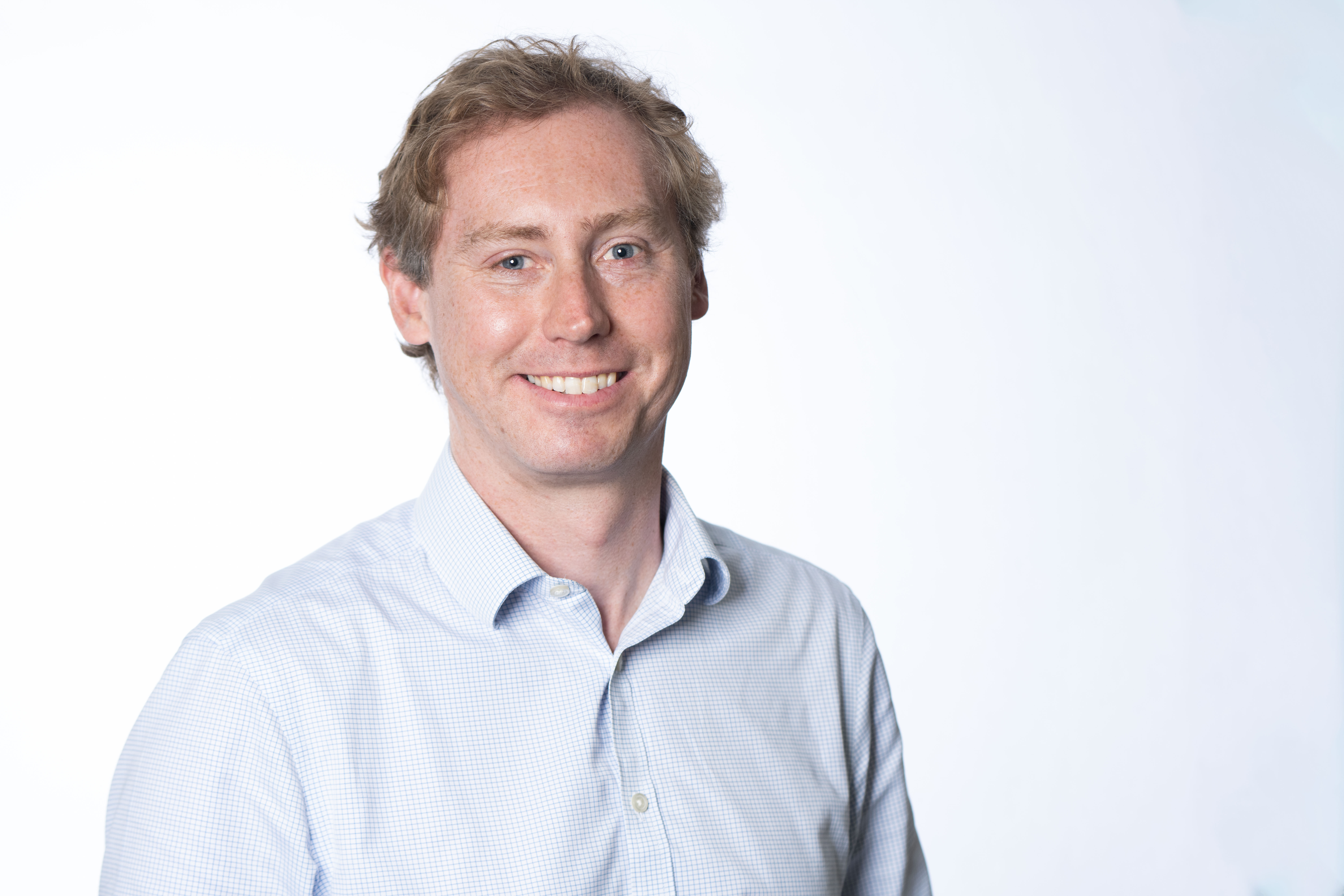
Sam Stranks (@samstranks) is Professor of Energy Materials and Optoelectronics and Royal Society University Research Fellow in the Department of Chemical Engineering & Biotechnology and a Cavendish Joint Member in the Cavendish Laboratory, University of Cambridge. He is also a Fellow of Clare College, Cambridge, and an elected Fellow of both the Royal Society of Chemistry and the Institute of Physics.
Sam graduated from the University of Adelaide in 2007 with a BA (German and Applied Mathematics), BSc Hons (Physics and Physical Chemistry) and a University Medal. He completed his PhD as a Rhodes Scholar at Oxford University, receiving the 2012 Institute of Physics Roy Thesis Prize. From 2012-2014, he was a Junior Research Fellow at Oxford University and Worcester College, Oxford, before holding a Marie Curie Fellowship at the Massachusetts Institute of Technology (2014-2016). Sam established his research group (@Strankslab) in Cambridge in 2017.
Sam's research focuses on the optical and electronic properties of emerging semiconductors including halide perovskites, carbon allotropes and organic semiconductors for low-cost electronics applications such as photovoltaics, lighting and detectors. He has led multi-centre projects from funders such as ERC, EPSRC, Leverhulme Trust and Royal Society totalling over £23M (£13M as PI). He received the 2016 IUPAP Young Scientist in Semiconductor Physics Prize, the 2017 Early Career Prize from the European Physical Society, the 2018 Henry Moseley Award and Medal from the Institute of Physics, the 2019 Marlow Award from the Royal Society of Chemistry, the 2021 IEEE Stuart Wenham Award, the 2021 Leverhulme Prize in Physics, the 2021 EES Lectureship, the 2022 Lem Prize and 2024 Blavatnik Awards in the UK Finalist. He is a TED Fellow and in 2017 was listed by the MIT Technology Review as one of the 35 under 35 innovators in Europe. Sam is a co-founder of Swift Solar, a startup developing high-performance perovskite PV panels, Clarity Sensors, a startup developing next-generation X-ray detectors for medical imaging, and Sustain/Ed, a not-for-profit developing education for school-age children around climate change solutions. He is also an Associate Editor at the AAAS journal Science Advances, and sits on the Editorial Boards for the journals ACS Energy Letters, Advanced Energy Materials, PRX Energy and Energy & Environmental Science.
Full publications list on Google Scholar here.
Group Support
Christina Freeman - P.A. and Secretary to Sam Stranks
(clnf2[a]cam.ac.uk)
(stranks-pa[a]ceb.cam.ac.uk)
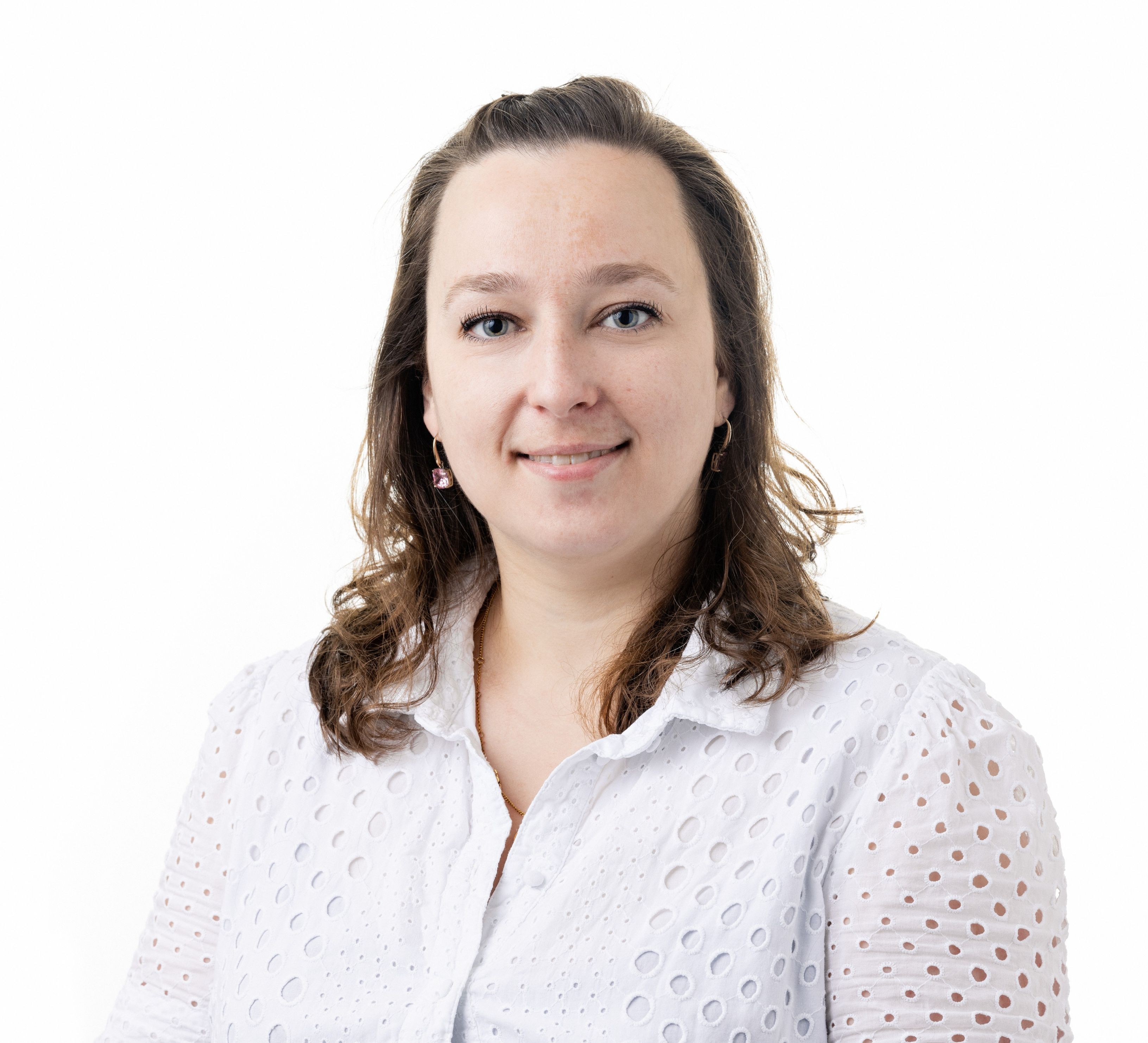
Christina joined the StranksLab in 2024. Originally from Germany, and having spent a number of years abroad, she settled in Cambridge in 2020. She brings to the team her wealth of knowledge in experience in hospitality, events, administration and Health & Safety to ensure the StranksLab team work to the best of their ability. She graduated from Newman University in 2013 with a degree in Early Childhood Education & Care.
Started April 2024.
Alessandro Mirabelli - Lab Manager
(ajm345[a]cam.ac.uk)
(strankslab-manager[a}ceb.cam.ac.uk)
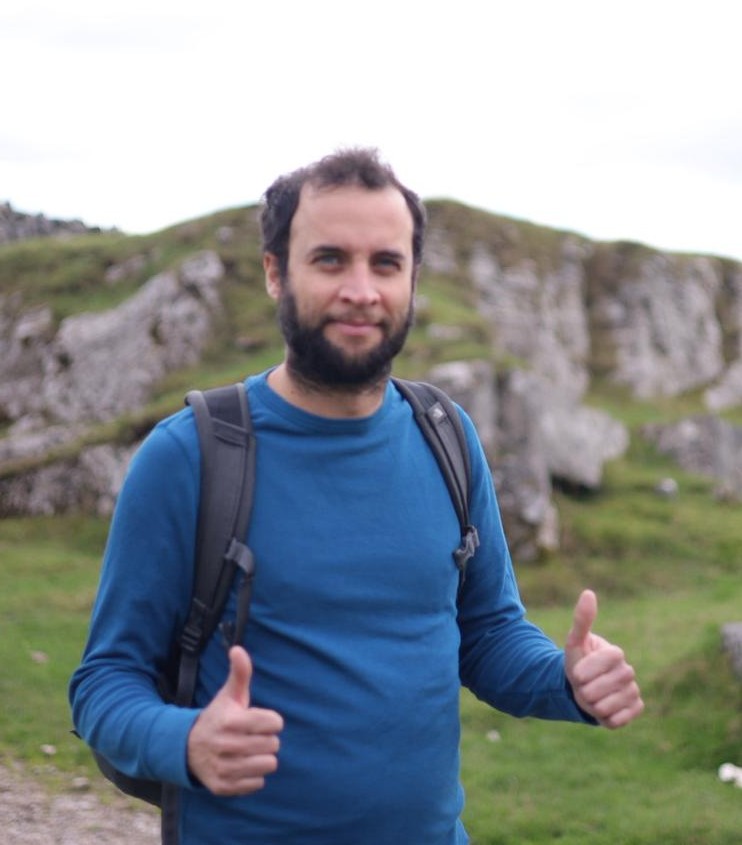
Proud Londoner Alessandro completed his BSc and MSc in Bologna under Prof. Fraboni. For his thesis he spent 6 months at KAUST in Prof. DeWolf's group where he worked on the fabrication of Perovskite/Silicon Bifacial solar cells. His research focuses on creating Blue Perovskite LEDs.
Started as Lab Manager in October 2023.
Started PhD inOctober 2021
Supervised by: Prof. Sam Stranks
Co-supervised by: Dr. Miguel Anaya
Subgroup Leaders
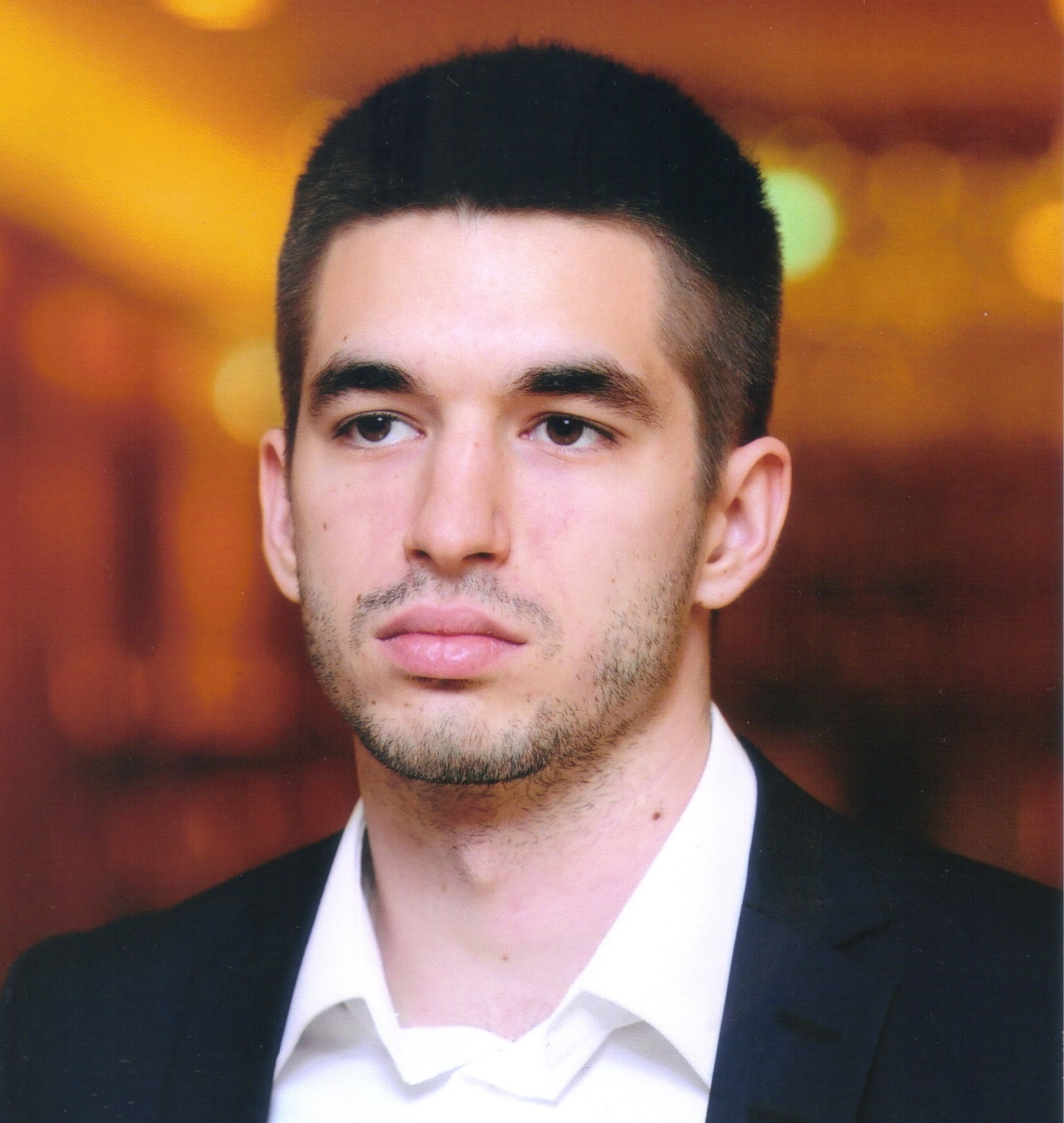
Dr Milos Dubajic (md942[a]cam.ac.uk) - Materials Subgroup Leader
Milos is a Marie Skłodowska-Curie Postdoctoral Fellow (MSCA) at the Department of Chemical Engineering and Biotechnology, and a Postdoctoral By-Fellow at Churchill College, University of Cambridge. He currently leads the Materials subgroup, coordinating its activities from material synthesis to advanced structural characterisation techniques, including synchrotron-based X-ray micro-spectroscopy and diffraction, as well as high-resolution electron microscopy. Milos’s research aims to elucidate the complex interplay between unconventional structural dynamics and the optoelectronic response of lead halide perovskites.
He received his BSc and MSc degrees in Electrical Engineering from the University of Belgrade, Serbia, with his master’s research focusing on the design of novel, lossless metamaterial structures. During his PhD at UNSW, Australia, he applied light, X-ray, and neutron spectroscopic techniques to investigate electron and phonon dynamics in emerging photovoltaic materials.
Started February 2022.
Started Subgroup Leader October 2022.
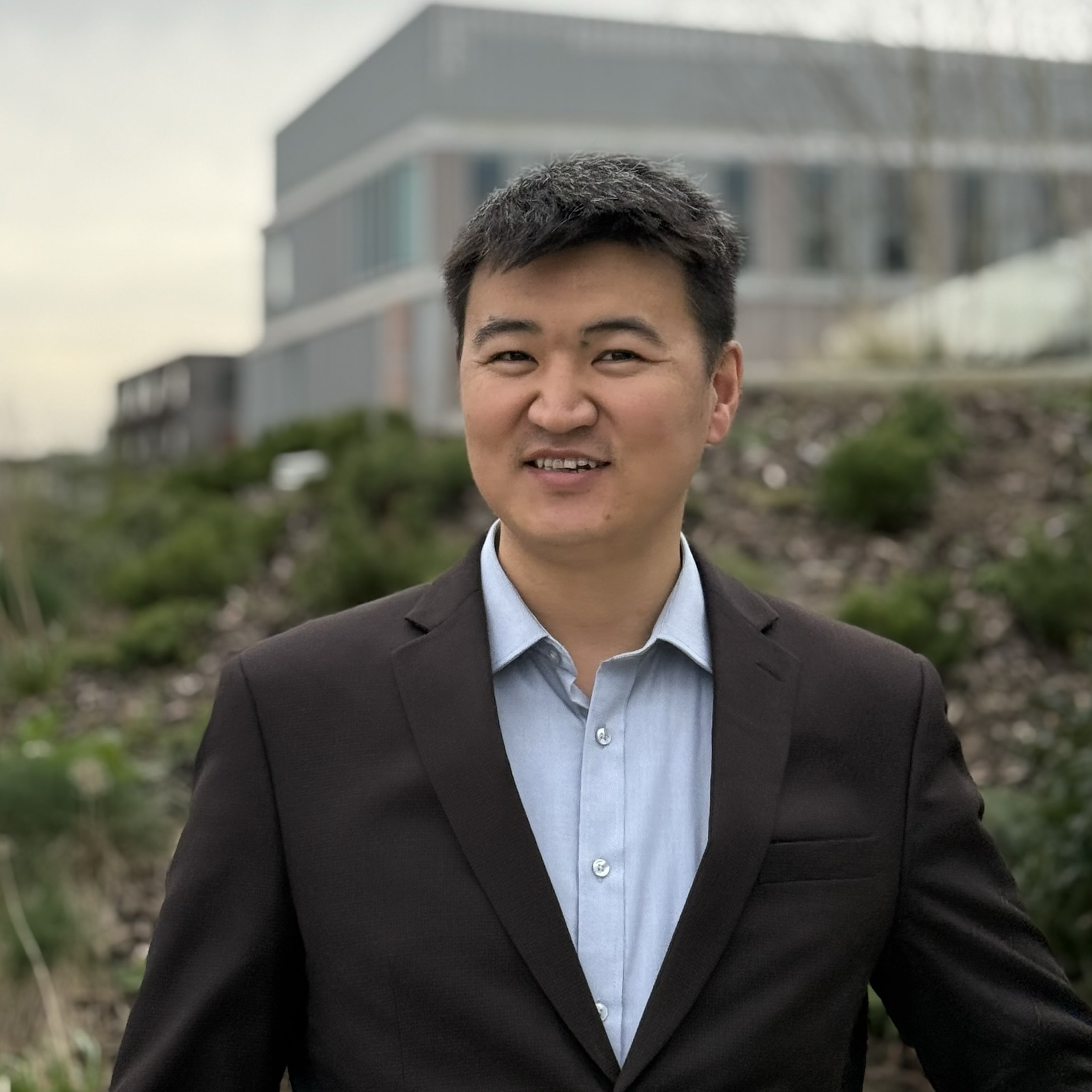
Dr Ganbaatar Tumen-Ulzii (gt433[a]cam.ac.uk) - Light Emission Subgroup Leader
Ganbaa is a Research Associate in the Department of Chemical Engineering and Biotechnology and College Research Associate (CRA) at Wolfson College, University of Cambridge. He has research experience in optoelectronic devices, including perovskite X-ray detection, solar cells, and LEDs. He received his PhD from Kyushu University, Japan, under the supervision of Professor Chihaya Adachi.
Currently, his research focuses on developing a novel X/gamma-ray detector for early-stage cancer detection. He also coordinates the integrated Light Emission/X-ray detection subgroup, focusing on both LEDs and X-ray detection.
Started November 2021.
Started Subgroup Leader May 2023
Dr Zimu Wei (zw450[a]cam.ac.uk) - Spectroscopy Subgroup Leader
Zimu received her MSc and PhD from Delft University of Technology in the Netherlands, where she studied two-photon absorption in metal halide perovskites (with Dr Tom J. Savenije) and photoinduced charge transfer in organic donor–acceptor systems and perovskite-based hybrid assemblies (with Prof Ferdinand C. Grozema). Currently a postdoc at StranksLab, she coordinates research activities in the Spectroscopy subgroup, which develops and applies advanced optical microscopy and spectroscopy techniques to study photophysics with spatial and temporal resolution. Her research focuses on using one-photon and two-photon PL microscopy to investigate perovskite single crystals for radiation detection applications.
Started September 2023.
Started Subgroup Leader January 2024.
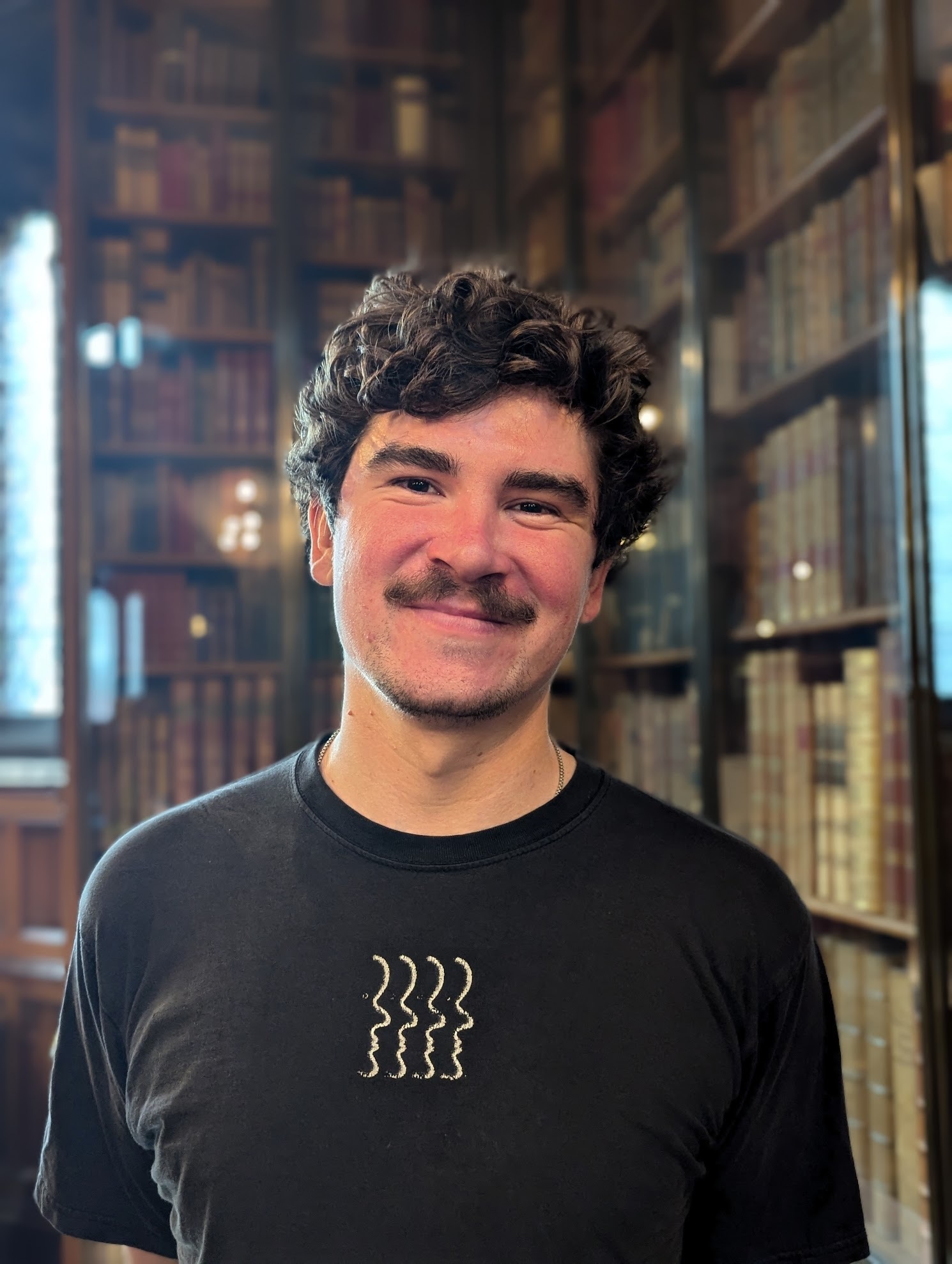
Dr Robert Westbrook (rw794[a]cam.ac.uk) - Impact Subgroup Leader
Rob Westbrook is a Marie Curie Fellow at the University of Cambridge. He carried out his PhD studies under Prof Saif Haque at Imperial, where he used advanced spectroscopy techniques to probe the dynamics of charge carriers in perovskite films for solar cells. He was a Mistletoe Postdoctoral Fellow at the University of Washington under Prof David Ginger, using ultrafast spectroscopy to understand the role of solid-state packing on determining charge generation and stability in organic semiconductors. His on-going research focuses on multi-modal microscopy of halide perovskites for broad application across optoelectronics. Rob enjoys his role as Impact subgroup lead, which aims to inform the general public about optoelectronics and their future role in society. On-going activities include Cambridge Festival (we run an event where attendees make dye-sensitized solar cells out of berries) and Physics at Work (where we explain the role of the "band gap" in semiconductor science).
Started September 2024
Started Subgroup Leader September 2024.
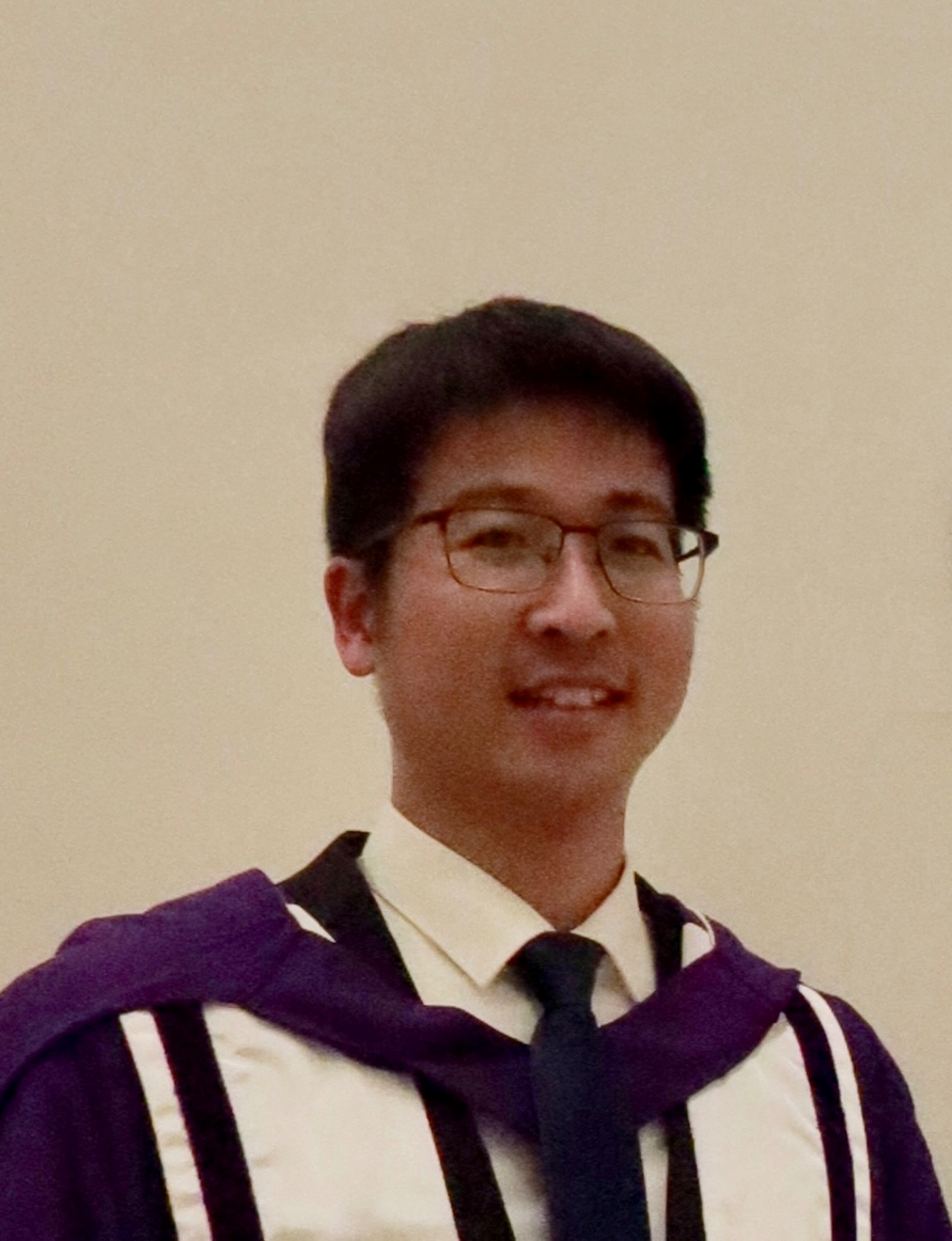
Dr Weidong Xu (wx257[a]cam.ac.uk) - Light Harvesting Subgroup Leader
Weidong is a Postdoctoral Research Associate at the Department of Chemical Engineering & Biotechnology and Cavendish Laboratory, University of Cambridge. He obtained his Ph.D. in optical spectroscopic studies on charge carrier dynamics in perovskite solar cells at Imperial College London under the supervision of Prof. James Durrant, CBE, FRS. He currently coordinates the activities within the Light Harvesting subgroup, ranging from the fabrication of various types of photovoltaics and solar fuel cells to advanced optoelectronic and optoelectrochemical characterization techniques. His current research focuses on employing various spectroscopic techniques, including operando PL, optical microscopy, TRPL, TA, EL, and others, to elucidate the correlation between materials processing and device performance in various optoelectronic applications.
Started November 2022.
Started Subgroup Leader September 2023.
Other Postdoctoral Researchers and Research Fellows
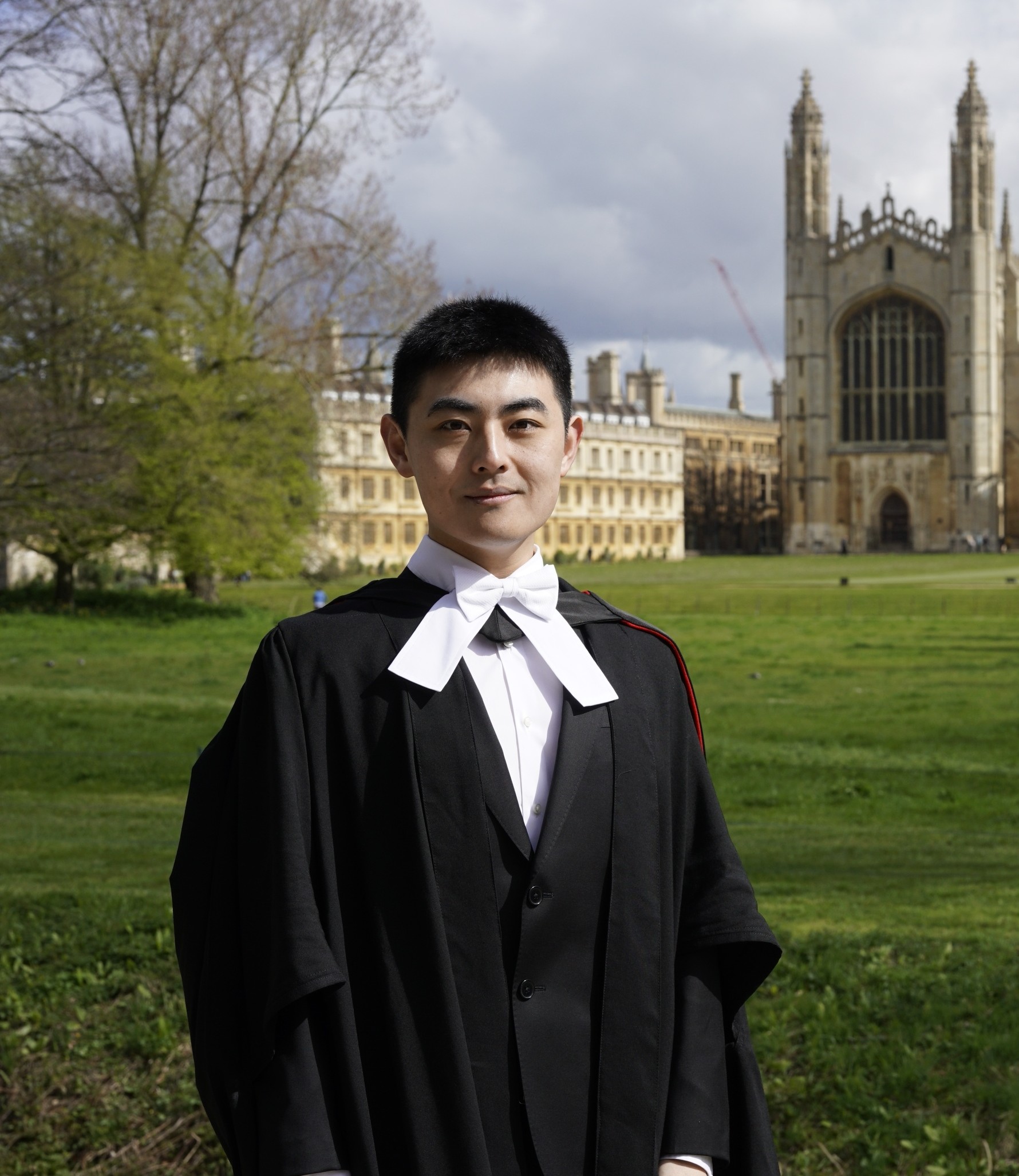
Dr Linjie Dai (ld474[a]cam.ac.uk)
Linjie received his PhD in Physics from Cambridge in 2021 for his work on ultrafast carrier dynamics in perovskite nanocrystals under the supervision of Prof. Neil C Greenham. He joined StranksLab as a postdoc working on time-resolved radioluminescence of perovskite emitters. Now he is working as a Marie Curie Fellow on quantum optics of perovskite nanocrystals jointly with Prof. Moungi G Bawendi at MIT.
Started June 2021.
Dr Hong In Jeong (hij24[a]cam.ac.uk)
Hong In Jeong obtained his PhD from the Department of Chemistry at Hanyang University, South Korea, where his research focused on mechanoluminescence (ML) materials, mechanisms, and applications. In June 2023, he joined the StranksLab as part of the Brainlink Project and is currently postdoctoral fellow funded by the National Research Foundation of Korea (NRF). His research aims to explore the fundamental principles of ML dynamics through spectroscopy and to develop next-generation applications of enhanced ML materials, including power-free displays, smart wearable sensors, and sono-optogenetics.
Started June 2023.
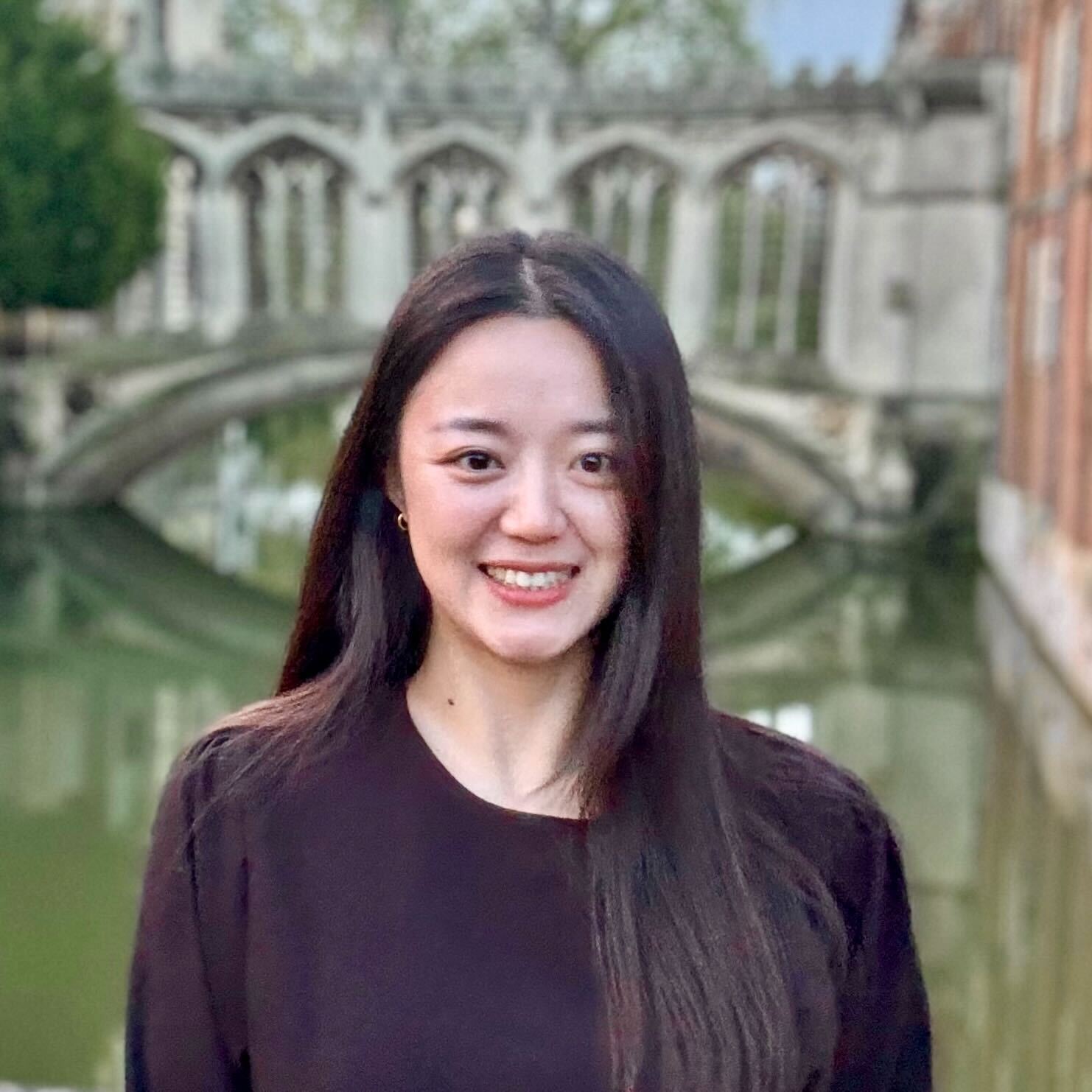
Dr Danbi Kim (dk711[a]cam.ac.uk)
Danbi Kim received her Ph.D. in Physics from Pukyong National University in 2023. Under the guidance of Professor Sung Heum Park, her research focused on controlling interfacial properties to enhance the efficiency and stability of organic and perovskite optoelectronic devices. Danbi joined StranksLab through the BrainLink project, where she is currently researching the analysis and optimization of interfacial properties in optoelectronic devices, such as solar cells and LEDs. Her primary focus is on tandem solar cells.
Started July 2023.
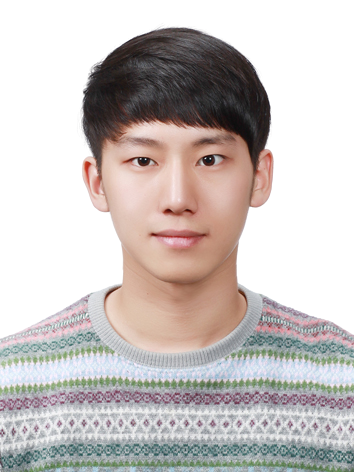
Dr Joosung Kim (jk961[a]cam.ac.uk)
Joosung Kim received his Ph.D. in Material Science and Engineering from Seoul National University in 2023. Under the guidance of Professor Tae-Woo Lee, his research focused on controlling bulk & interfacial properties of perovskite optoelectronic devices to enhance their stability. Joosung joined StranksLab through the BrainLink project, where he is currently researching the origin of degradation mechanism and related anaylsis in optoelectronic devices.
Started April 2024.
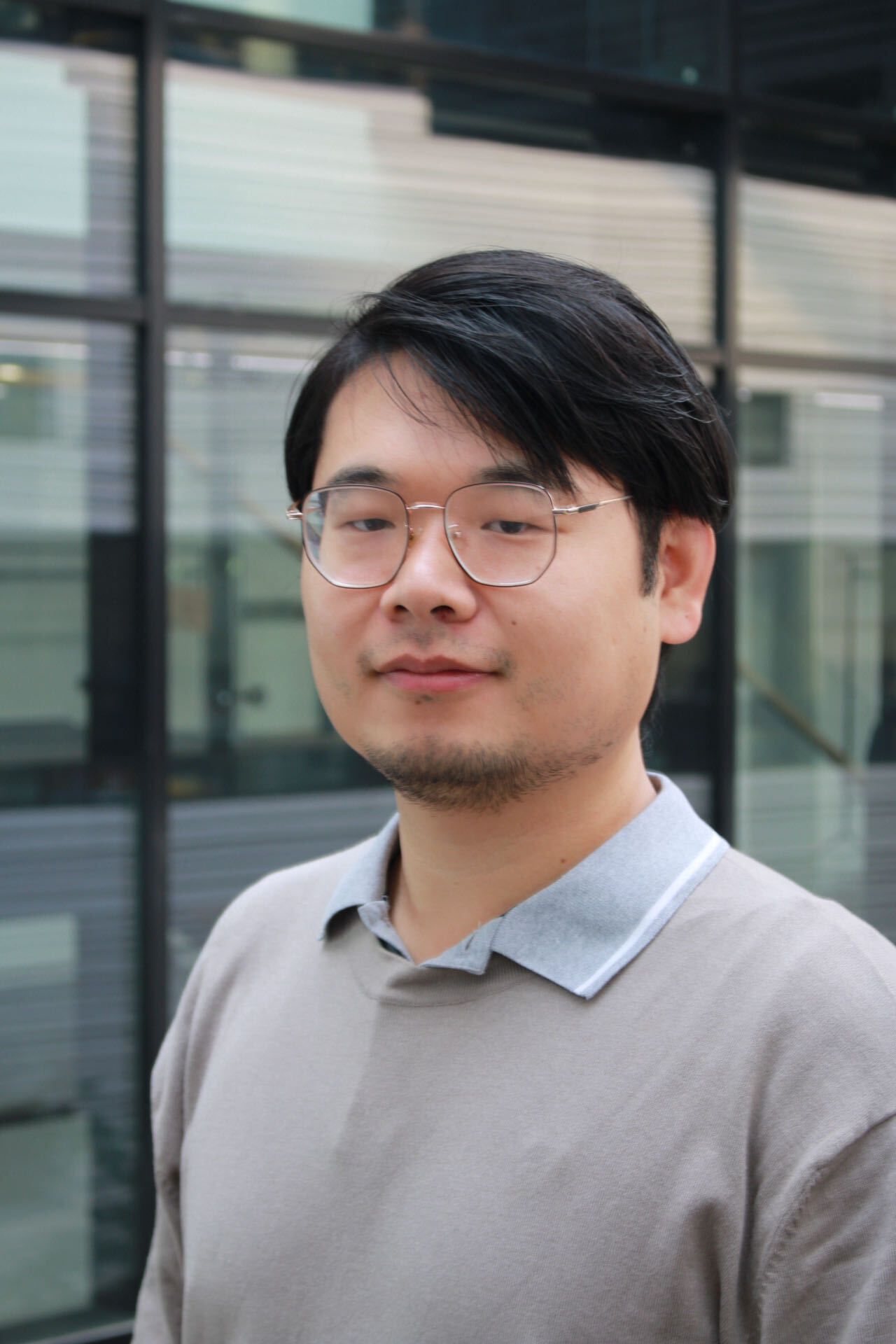
Dr Tianjun Liu (tl586[a]cam.ac.uk)
Tianjun is a Leverhulme Early Career Fellow and Marie Curie Fellow. He is working on perovskite LEDs and chiral semiconductors.
Started November 2022.
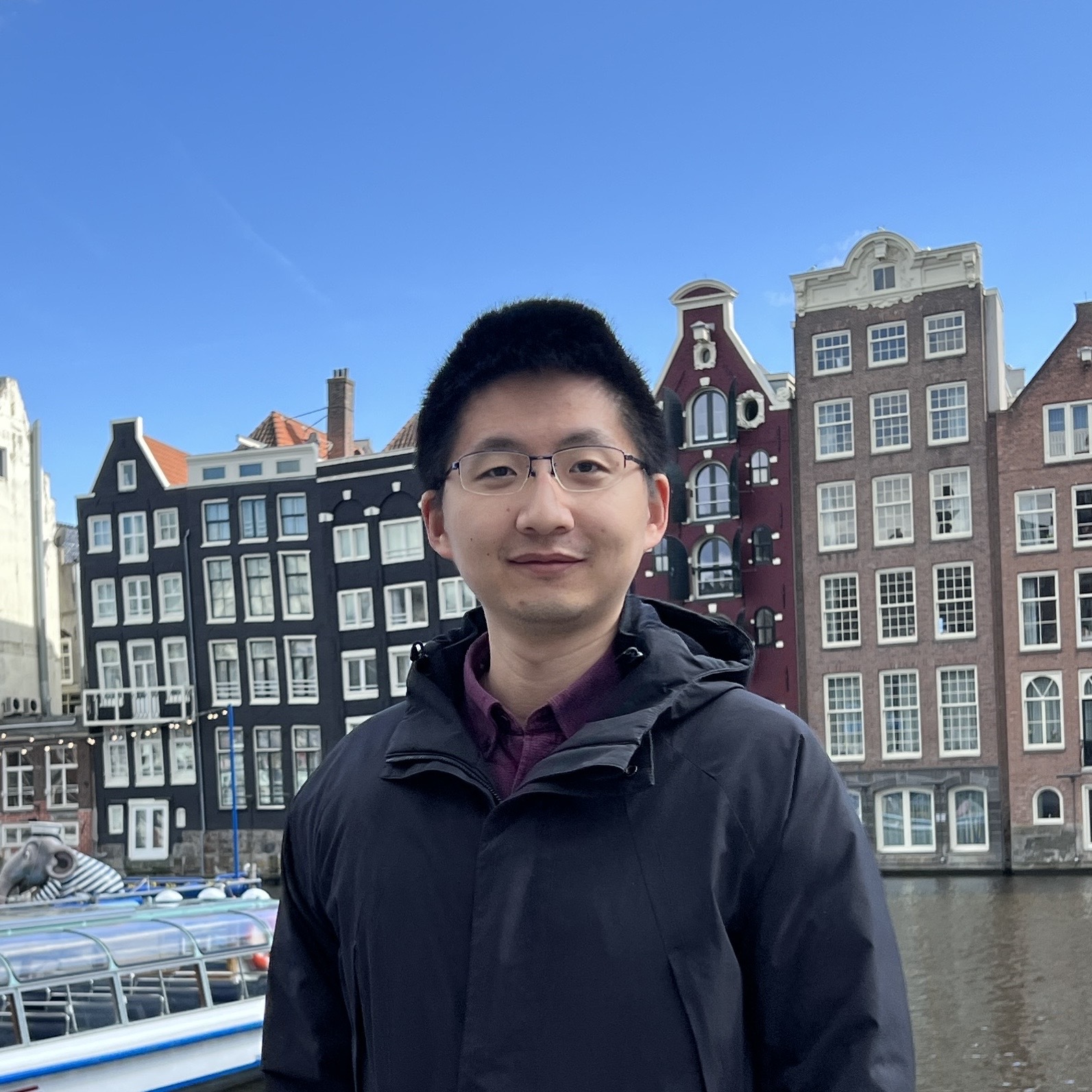
Dr Yang Lu (yl877[a]cam.ac.uk)
Yang obtained his PhD in Materials in University of Oxford for synthesis and characterisations of 2D layered semiconductors and heterostructures under the advisement of Prof. Jamie Warner. He joined the group as a postdoc working on fabrication of 2D/3D perovskite superlattice for LEDs under joint supervision of Prof. Richard Friend and Prof. Neil Greenham.
Started Feb 2022.
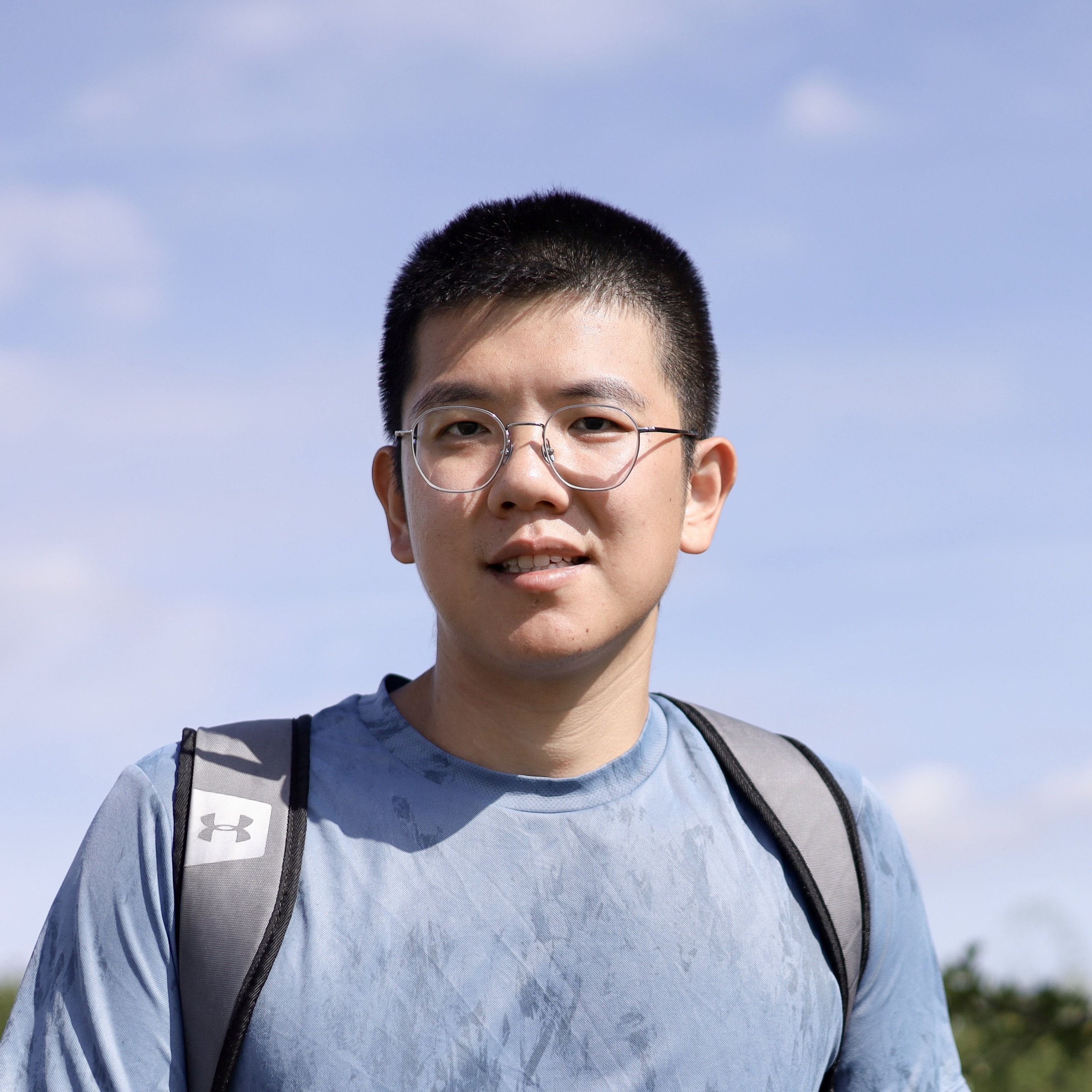
Dr Youcheng Zhang(yz596[a]cam.ac.uk)
Youcheng obtained his PhD in Physics from Cambridge in 2024 under the supervision of Prof. Henning Sirringhaus and Prof. Sam Stranks. His PhD focused on charge transport and thermoelectric physics in perovskite semiconductors. He rejoined as a joint-postdoc in Sirringhaus Lab and StranksLab on March 2025 under the EPSRC VETSOFT Cambridge-Princeton programme. Youcheng aims to understand doping physics in perovskite optoelectronics devices.
Started March 2025.
Dr Wenxin Mao (wm362[a]cam.ac.uk)
Wenxin Mao is a Royal Society Newton Fellow and Senior Researcher at the Department of Chemical Engineering and Biotechnology, Cambridge. He previously held an Australian Centre for Advanced Photovoltaics Fellowship and an ARC Centre of Excellence in Exciton Science Research Fellow at Monash University, Australia.
Joined March 2024.
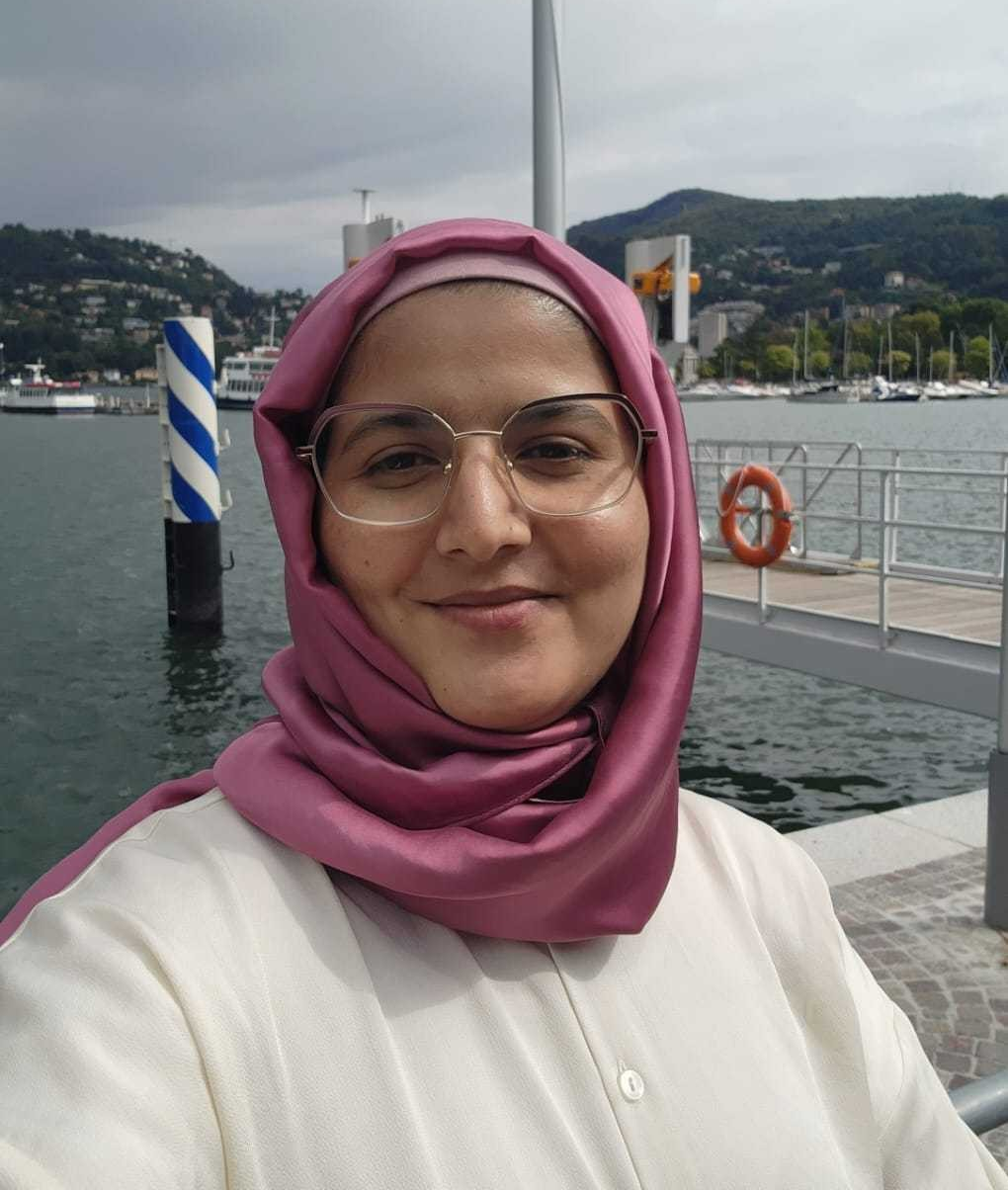
Dr Shabnum Maqbool (sm2762[a]cam.ac.uk)
Shabnum is a postdoctoral researcher who joined StranksLab in 2023. She is funded by the EPSRC-funded International Centre-to-Centre programme with the Sustainable Energy Materials group at AMOLF, Amsterdam, with Richard Friend, Akshay Rao, and Neil Greenham. She is exploring the fundamental properties of 2D/3D perovskite superlattices and their respective device architectures, such as LEDs and chiral perovskites using ultrafast spectroscopic techniques such as fs Transient absorption and impulsive Vibrational spectroscopies. Shabnum obtained her PhD from the Indian Institute of Science Education and Research, Pune (IISER-Pune), where she worked on exploring the “Linear and Nonlinear Optical Properties and Ultrafast Dynamics of Hybrid Lead Halide Perovskites” using optical pump Terahertz probe and optical Kerr effect spectroscopies. She has received her B.Sc. and M.Sc. from the University of Kashmir, J&K.
Started in January 2023.
Dr Hayden Salway (hajs2[a]cam.ac.uk)
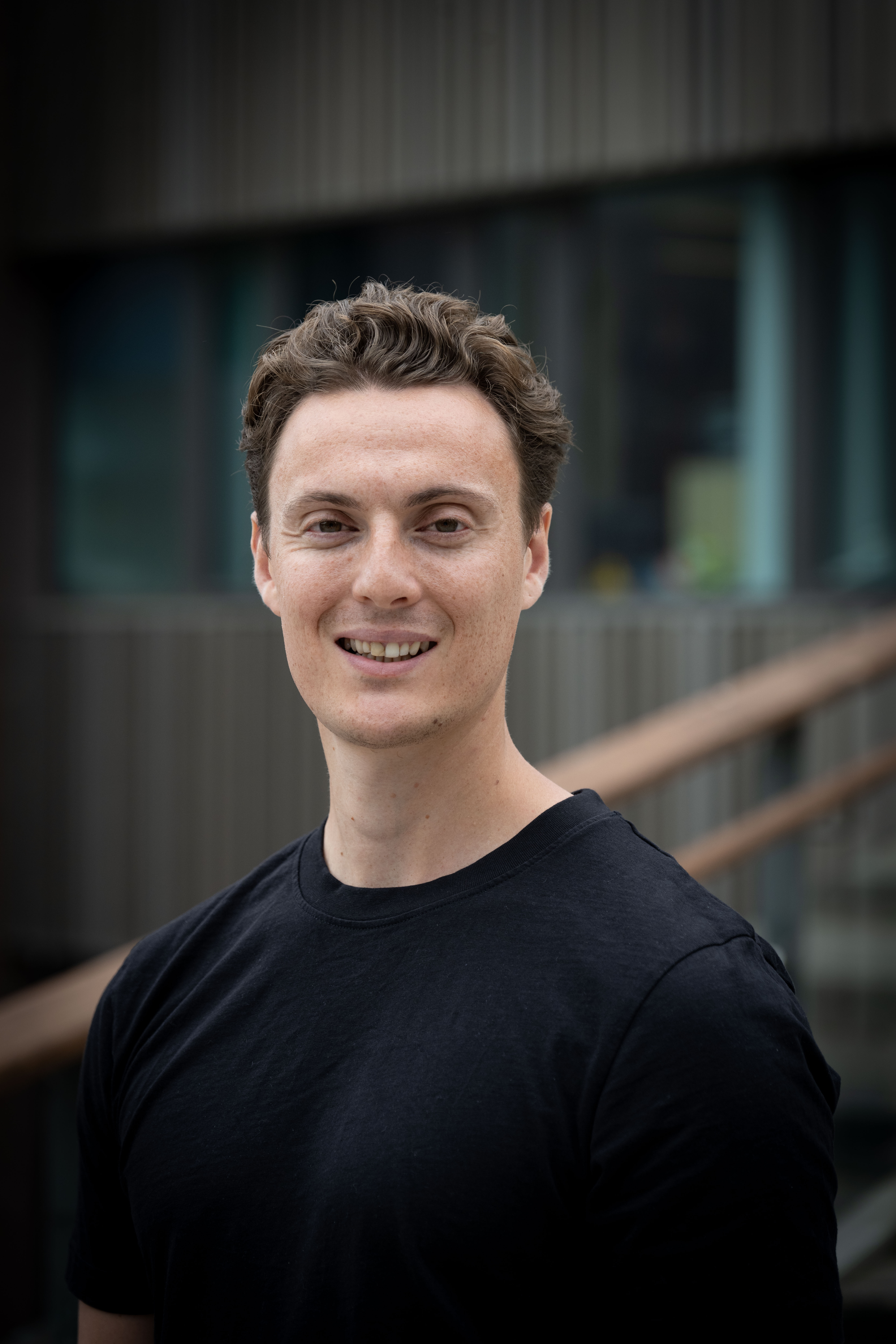
Hayden previously completed his undergraduate (MChem) at Loughborough University before completing his MRes and PhD at the University of Cambridge focusing on the synthesis and characterisation of next generation X-ray detector materials. Hayden is now a co-founder and CEO of Clarity Sensors, a spin-out company from StranksLab commercialising ultra-low-dose photon counting X-ray detectors to enable safer, more accessible screening and diagnosis of diseases such as cancer at the earliest possible stages.
Started as a PhD October 2020.
Started as a Postdoc October 2023.
PhD Students
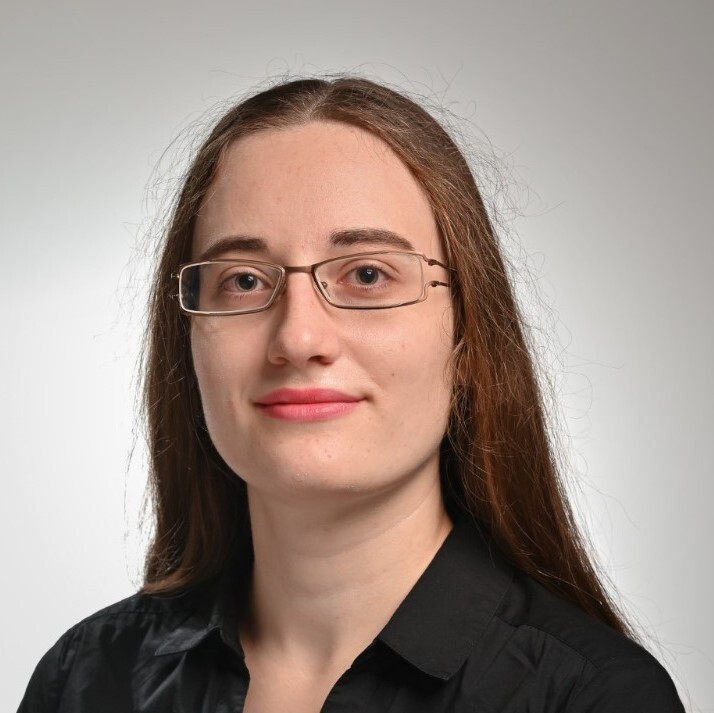
Konstantina Kalliopi Armadorou (kka32[a]cam.ac.uk)
Konstantina is a Schiff Scholar and PhD student in Chemical Engineering, interested in transient spectroscopy for hybrid perovskite devices. She obtained her MSc degree in Chemistry from École Polytechnique Fédérale de Lausanne (EPFL, Switzerland) as an Alfred Werner Scholar, under the supervision of Prof. Michael Grätzel, focusing on perovskite solar cells modulated with low-dimensional stimuli-responsive materials. She previously completed her BSc degree in Chemistry at the National Kapodistrian University of Athens in Greece and spent one year as a Research Assistant at NCSR “Demokritos”, working on organic and perovskite photovoltaics and LEDs. She is an active member of the Swiss Chemical Society (SCS), the Royal Society of Chemistry (RSC), and the European Young Chemists' Network (EYCN).
Started October 2024
Supervised by: Prof. Sam Stranks
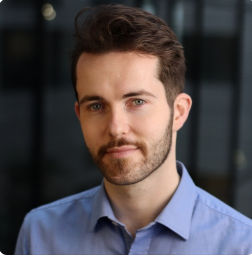
Yorrick Boeije (yb289[a]cam.ac.uk)
Yorrick is interested in how nuclear dynamics affect exciton and charge transport at the femtosecond timescale in various optoelectronic materials. When combining this temporal resolution with nanometer spatial resolution, these interactions may be linked to local heterogeneous features, such as defects. This could elucidate the role of defects, as well as the intimate connection with nuclear dynamics involved in nonradiative decay, which should be minimized to enhance optoelectronic performance. Yorrick completed his BSc and MSc in Chemistry in Amsterdam.
Started October 2021.
Supervised by: Prof. Sam Stranks
Co-supervised by: Prof. Akshay Rao
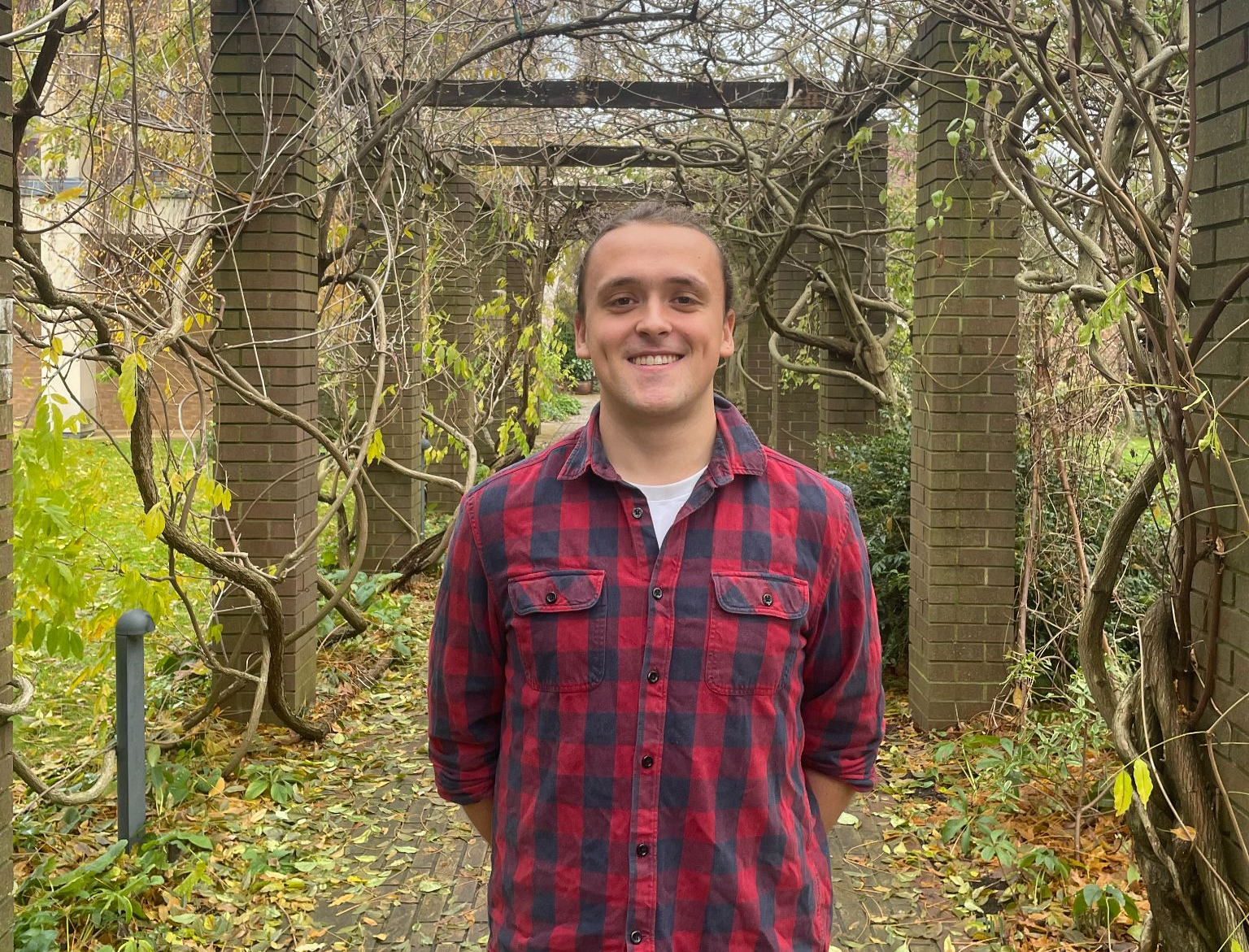
Seán Cardiff (smc241[a]cam.ac.uk)
Seán Cardiff is a Photonics CDT PhD student and his research interests are focused on single photon counting X-ray detection for medical imaging. He obtained an MRes degree in Connected Electronic and Photonic Systems from the University of Cambridge. He obtained his Bachelor’s degree in chemical science specialising in nanoscience from Trinity College Dublin.
Started October 2024
Supervised by: Prof. Sam Stranks
Co-supervised by: Dr Ganbaa Tumen-Ulzii
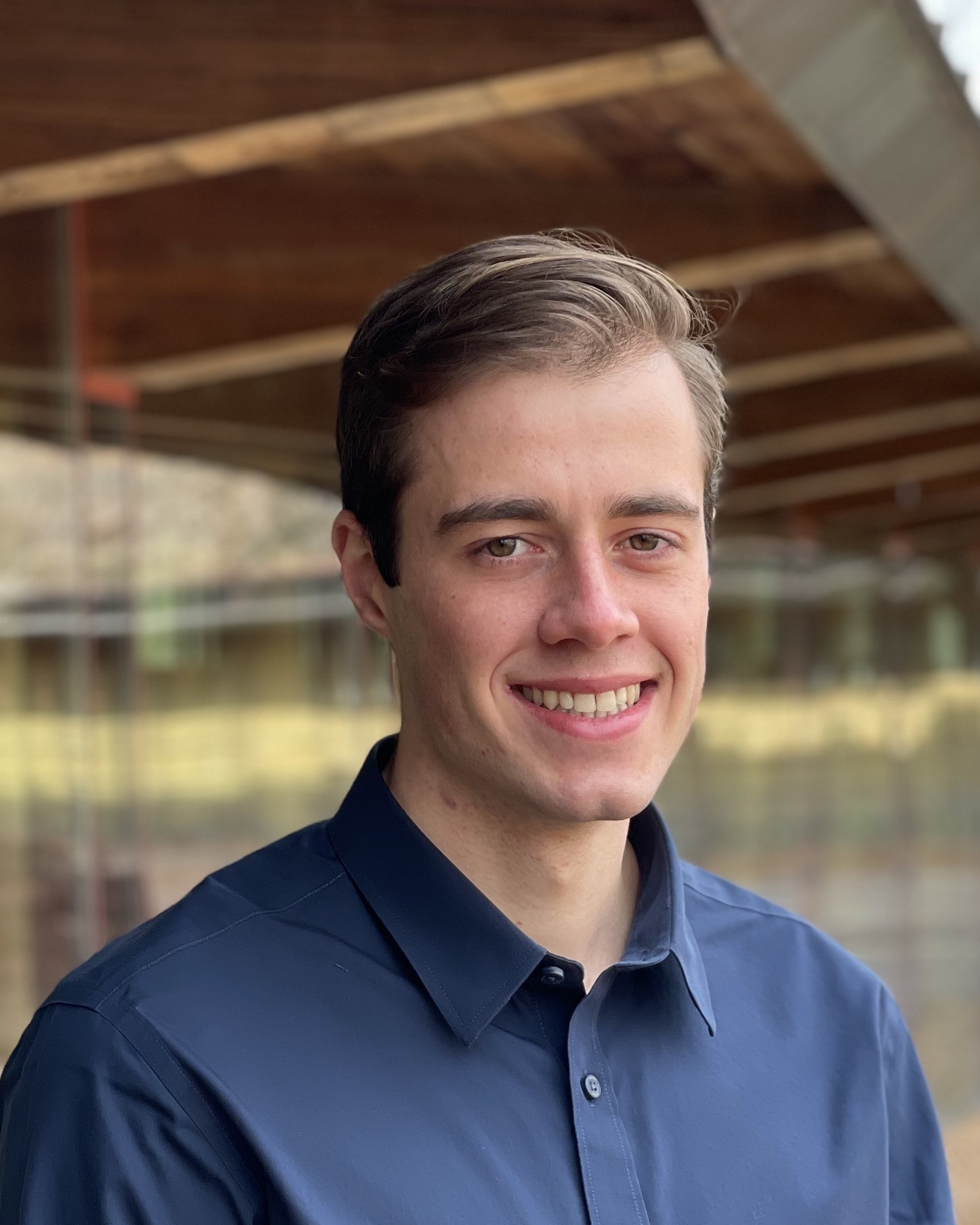
Cullen Chosy (cbc37[a]cam.ac.uk)
Cullen grew up in Madison, Wisconsin, and studied chemical engineering at Stanford University. His research interests focus on characterizing and engineering emerging semiconductors to enable cheaper and more efficient solar cells. A 2021 Marshall Scholar, he has previously researched contact layers for tandem photovoltaics with Prof. Mike McGehee at the National Renewable Energy Laboratory (NREL) and applications of atomic layer deposition on perovskites with Prof. Stacey Bent at Stanford.
Started October 2021.
Supervised by: Prof. Sam Stranks
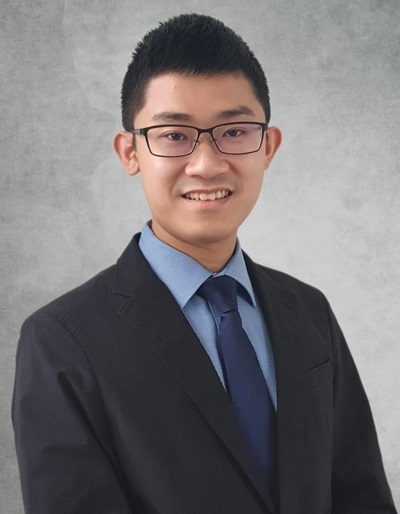
Xian Wei Chua (xwc21[a]cam.ac.uk)
Xian Wei employs ultrafast optical spectroscopy and microscopy, correlated with multimodal techniques, to study the spatiotemporal dynamics of carriers in energy and quantum materials. He graduated from the University of Cambridge in 2022 with a double first-class BA in Natural Sciences (Physics), and spent a year as a research scientist at the Agency for Science, Technology and Research (Singapore). Formerly summer student with Rank Prize Scholarship in Optoelectronics.
Started October 2023.
Supervised by: Prof. Sam Stranks
Co-supervised by: Prof. Akshay Rao
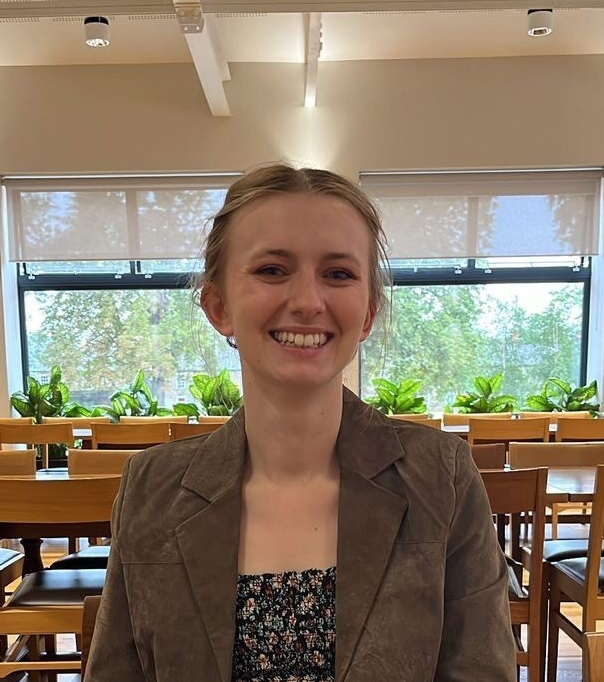
Hayley Gilbert (hg479[a]cam.ac.uk)
Hayley is a Sensor CDT and Diamond Light Source student co-supervised by Dr Diego Gianolio. Her project focuses on mapping mixed composition perovskites using PL and X-ray spectromicroscopy to investigate chemical heterogeneity and halide segregation. She completed her undergraduate degree (MSci Natural Sciences) at the University of Nottingham.
Started October 2021
Supervised by: Prof. Sam Stranks
Co-supervised by: Dr Diego Gianolio
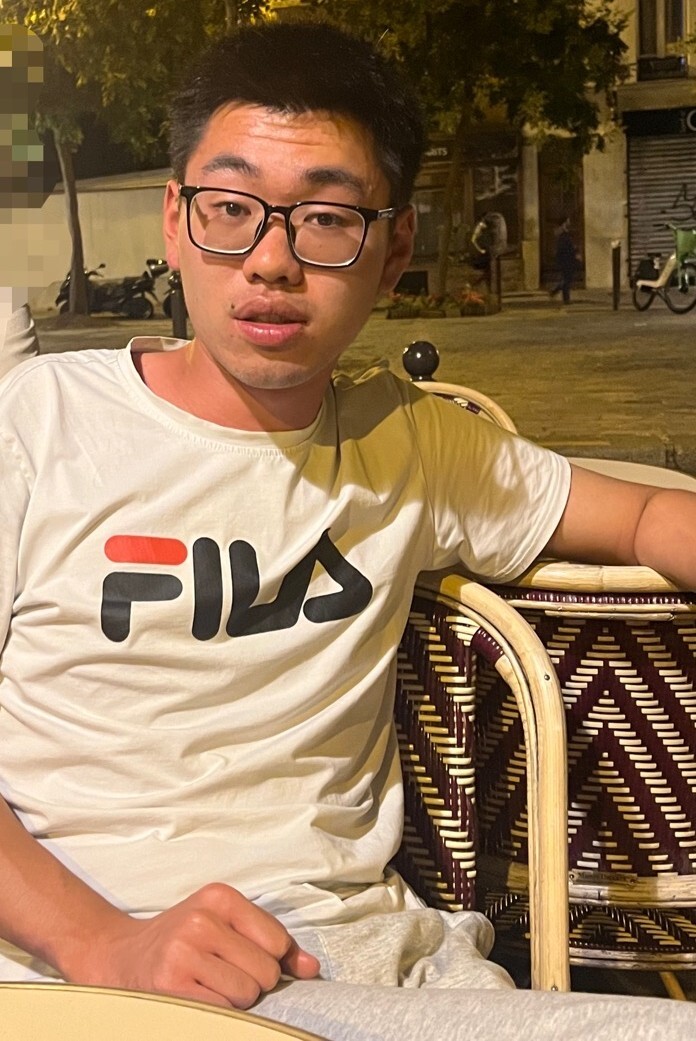
Qichun Gu (qg227[a]cam.ac.uk)
Qichun completed his MRes in Imperial College London under supervision of Prof. James Durrant, focusing on photodarkening and photobrightening for perovskite solar cells. He is currently a PhD student in Strankslab, interested in understanding mechanism to achieve pure-phase 2D perovskite and generating polarization for perovskite light-emitting diodes.
Started January 2022
Supervised by: Dr. Miguel Anaya
Co-supervised by: Prof. Sam Stranks

Yutong Han (yh502[a]cam.ac.uk)
Yutong is a PhD student interested in developing low-bandgap perovskite solar cells. She completed her MSci degree under the supervision of Prof. Saif Haque working on Lead-free Tin based perovskite solar cells.
Started October 2022
Supervised by: Dr. Miguel Anaya
Co-supervised by: Prof. Sam Stranks
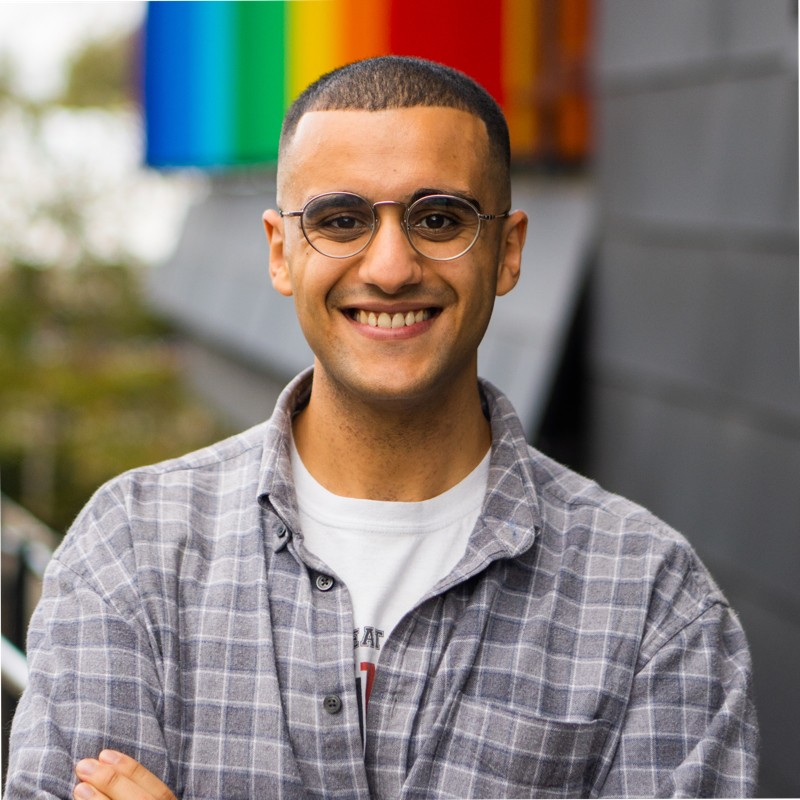
Tariq Hussein (tkh33[a]cam.ac.uk)
Tariq is a PhD student twinned between the Department of Physics and Chemical Engineering looking into the crystallisation kinetics of lead halide perovskite quantum dots. He is interested in studying the early-time growth of highly confined systems using microfluidics coupled with in-situ and ex-situ spectroscopic analysis. In tandem to this, his interest extends to organic semiconductor systems namely thermally activated delayed fluorescence (TADFs). Utilising advanced spectroscopic techniques (e.g., transient absorption) to probe carrier dynamics at fast timescales (e.g., fs-ns) to improve the efficiency of blue emitting light diodes.
Previously, Tariq attended the University of Leeds attaining a degree in Chemical and Materials Engineering (BEng) followed by a master’s at the University of Cambridge in Advanced Chemical Engineering (MPhil) and Nanoscience (MRes).
Started October 2023.
Supervised by: Prof. Laura Torrente Murciano
Co-supervised by: Prof. Sam Stranks
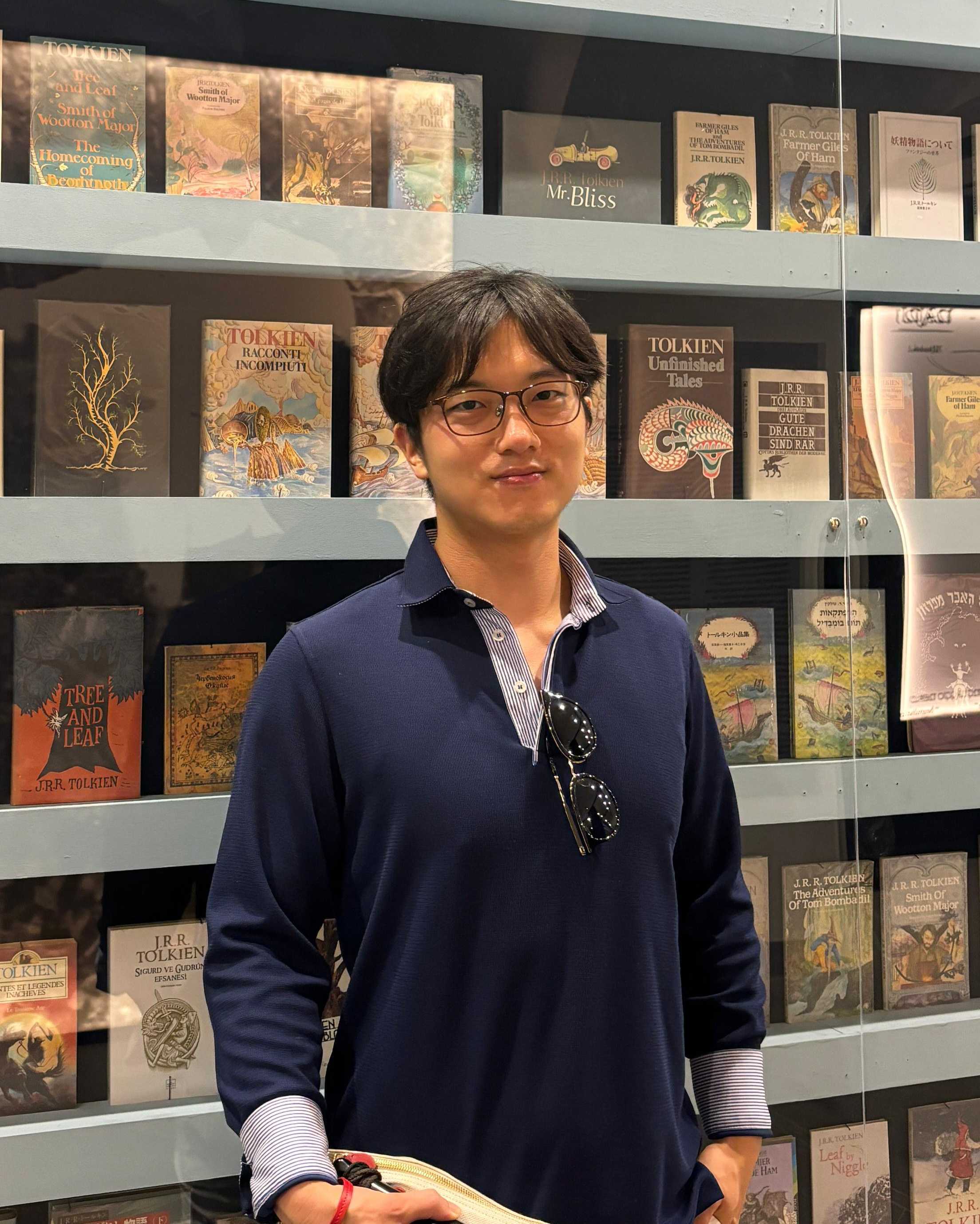
Taeheon Kang (tk611[a]cam.ac.uk)
Taeheon graduated with a BSc in Chemistry at Chung-ang University in South Korea. He then moved to Samsung Display where he worked on inkjet-printed organic and quantum-dot LEDs. His PhD research focusses on novel materials and architectures of perovskite solar cell/LEDs.
Started October 2022
Supervised by: Dr. Miguel Anaya
Co-supervised by: Prof. Sam Stranks
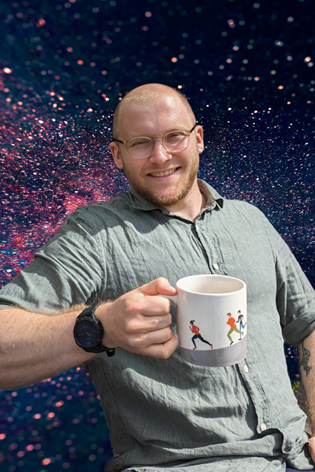
Barney Lewis (bail2[a]cam.ac.uk)
Barnaby graduated from the University of Warwick with an integrated master's degree in 2019. During his 3rd year, he completed a 14-week research project on the synthesis and structure of iron spin-crossover complexes in the Murray Group of Monash University, Australia. His final year MChem project with the Stavros Group, Warwick, focussed on the ultra-fast kinetics of molecular switches using transient absorption spectroscopy. After a 2-year break from research in industry, he will be using time-resolved spectroscopy to study emerging semiconductor materials including perovskites and perovskite-inspired materials.
Started October 2021.
Supervised by: Prof. Sam Stranks

Rebecca Martin (ram217[a]cam.ac.uk)
Rebecca’s PhD research focusses on the development and use of advanced characterisation tools to drive next-generation halide perovskite development jointly with Swift Solar’s R&D team. She is interested in understanding the power losses and instabilities that will drive further device development and facilitate commercialisation of this technology.
Previously, she graduated from the University of Bristol with an MSci in Chemistry working on CIS thin film solar cells.
Started October 2024
Supervised by: Prof. Sam Stranks
Co-supervised by: Dr Rohit Prasanna, Swift Solar

Capucine Mamak (cpamm2[a]cam.ac.uk)
Capucine is a PhD student on the Connected Electronics and Photonics CDT, her research focuses on investigating the correlations between the structural and optoelectronic properties of perovskites. She has previously studied for both a Physics BSc and masters at Bristol University, then completed an MRes at Cambridge University.
Started October 2023.
Supervised by: Prof. Sam Stranks
Co-supervised by: Dr Milos Dubajic
Jonah Messinger (jfm62[a]cam.ac.uk)
Jonah is a Winton Scholar and PhD student in Physics working on quantum cutting, high light yield scintillators, and gammavoltaic devices. Previously, he was a Senior Energy Analyst at the Breakthrough Institute and a visiting researcher at ETH Zurich. Jonah earned his master’s in Energy Systems Engineering and bachelor’s in Physics from the University of Illinois at Urbana-Champaign, where he was a Udall Scholar.
Started October 2022
Supervised by: Prof. Richard Friend
Co-supervised by: Prof. Sam Stranks
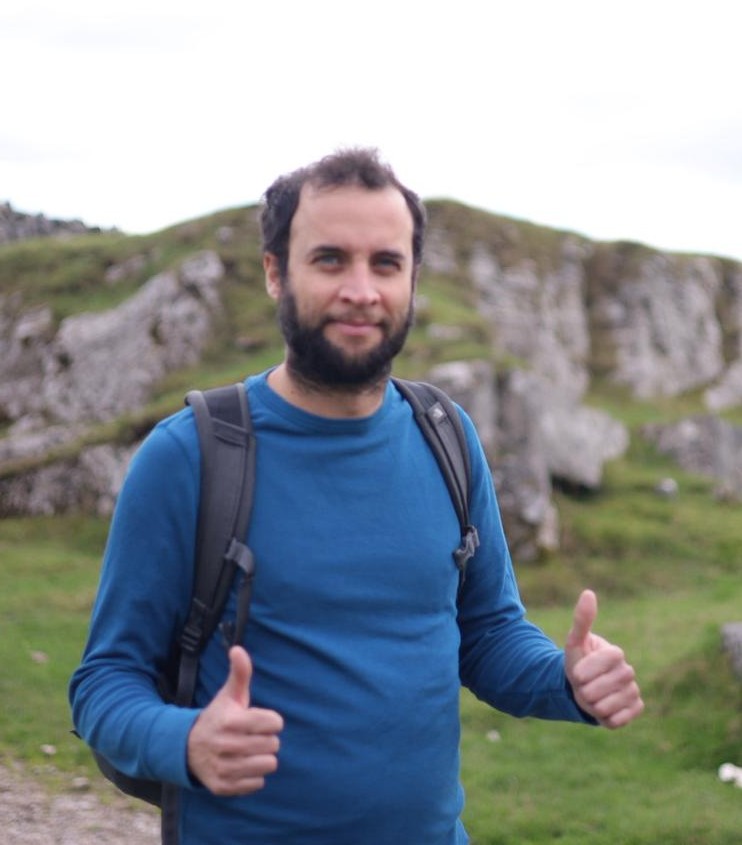
Alessandro James Mirabelli (ajm345[a]cam.ac.uk)
Proud Londoner Alessandro completed his BSc and MSc in Bologna under Prof. Fraboni. For his thesis he spent 6 months at KAUST in Prof. DeWolf's group where he worked on the fabrication of Perovskite/Silicon Bifacial solar cells. His research focuses on creating Blue Perovskite LEDs.
Started October 2021
Supervised by: Prof. Sam Stranks
Co-supervised by: Dr. Miguel Anaya
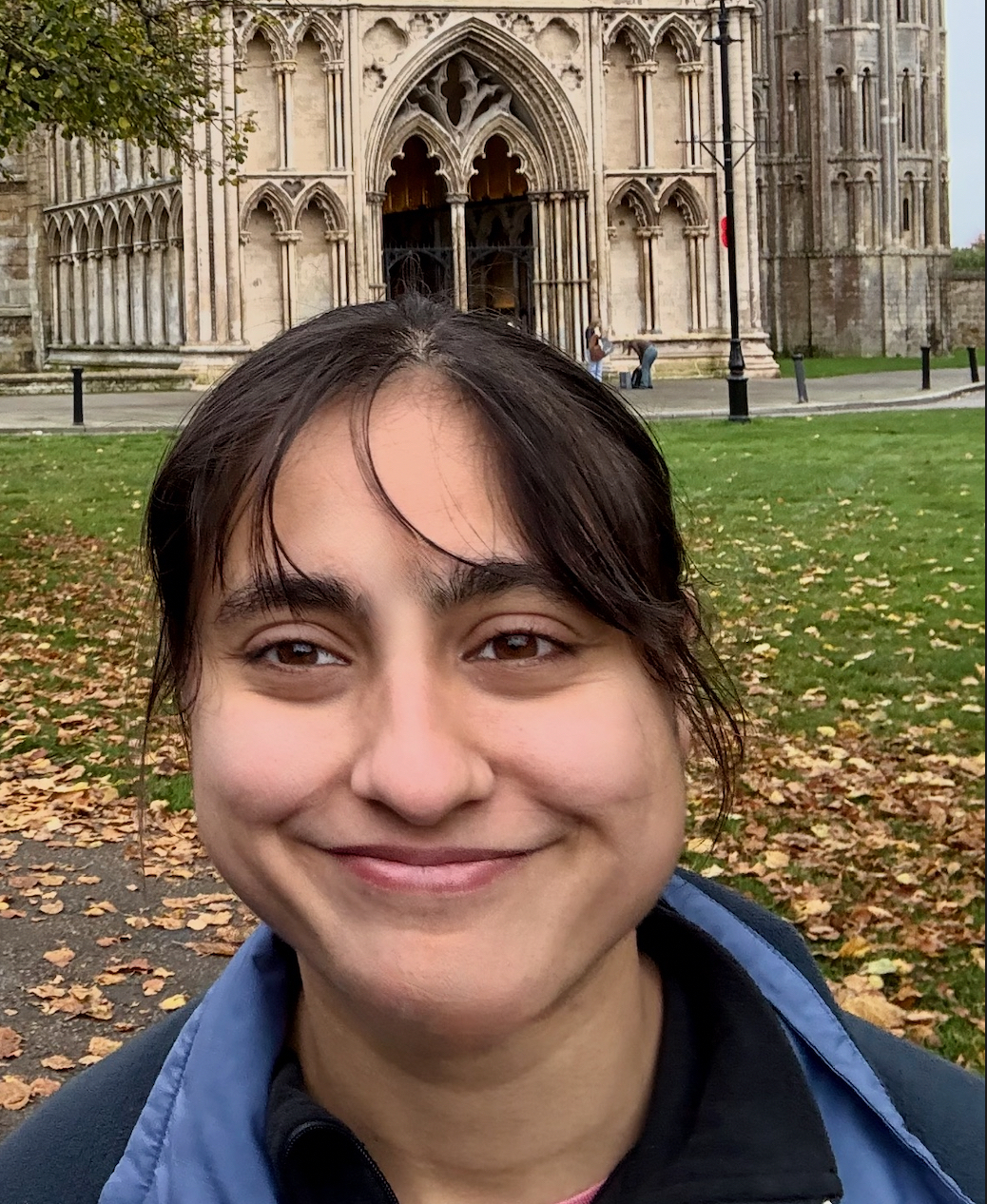
Anna Nandhakumar (an720[a]cam.ac.uk)
Anna is a PhD student focused on using ultrafast polarized spectroscopy to characterize and investigate the properties of emerging chiral perovskite materials. She previously completed an MPhil at Cambridge, supervised by Dr. Mike Casford, where she utilized non-linear and surface spectroscopy to study model membrane systems. Anna also holds a BSc in Chemistry from the University of Nottingham.
Started October 2026
Supervised by: Prof. Sam Stranks
Daily Supervised: Dr. Zimu Wei
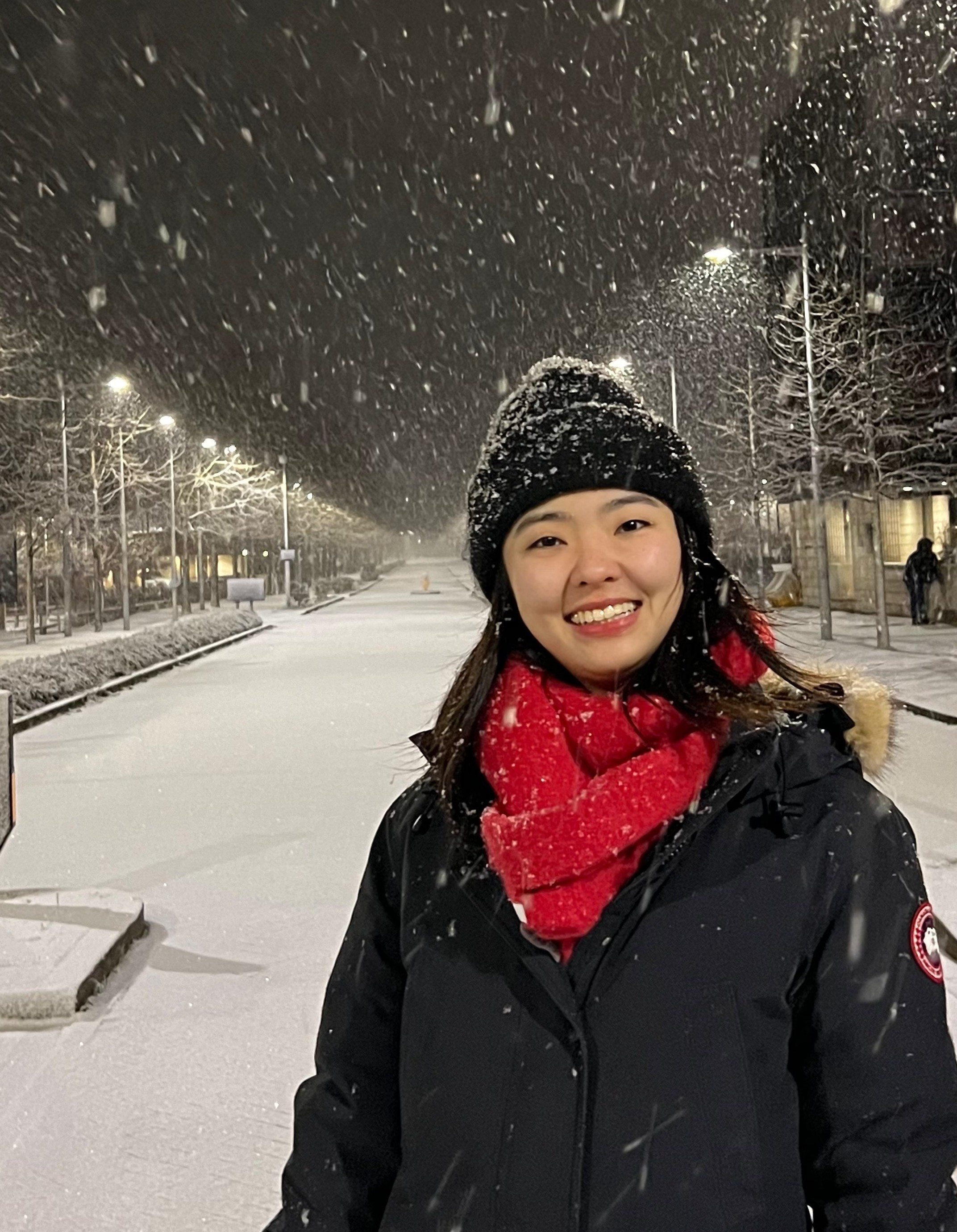
Shenyu Nie (sn597[a]cam.ac.uk)
Shenyu is a PhD student focusing on multichannel optical communication enabled through novel low-dimensional materials processed from solution. She previously completed her MRes at the University of Cambridge under the supervision of Prof. Richard Penty, working on indoor optical wireless communication and BEng in Electronic and Electrical Engineering at University College London.
Started January 2023
Supervised by: Prof. Sam Stranks
Co-supervised by: Dr. Simon Kahmann
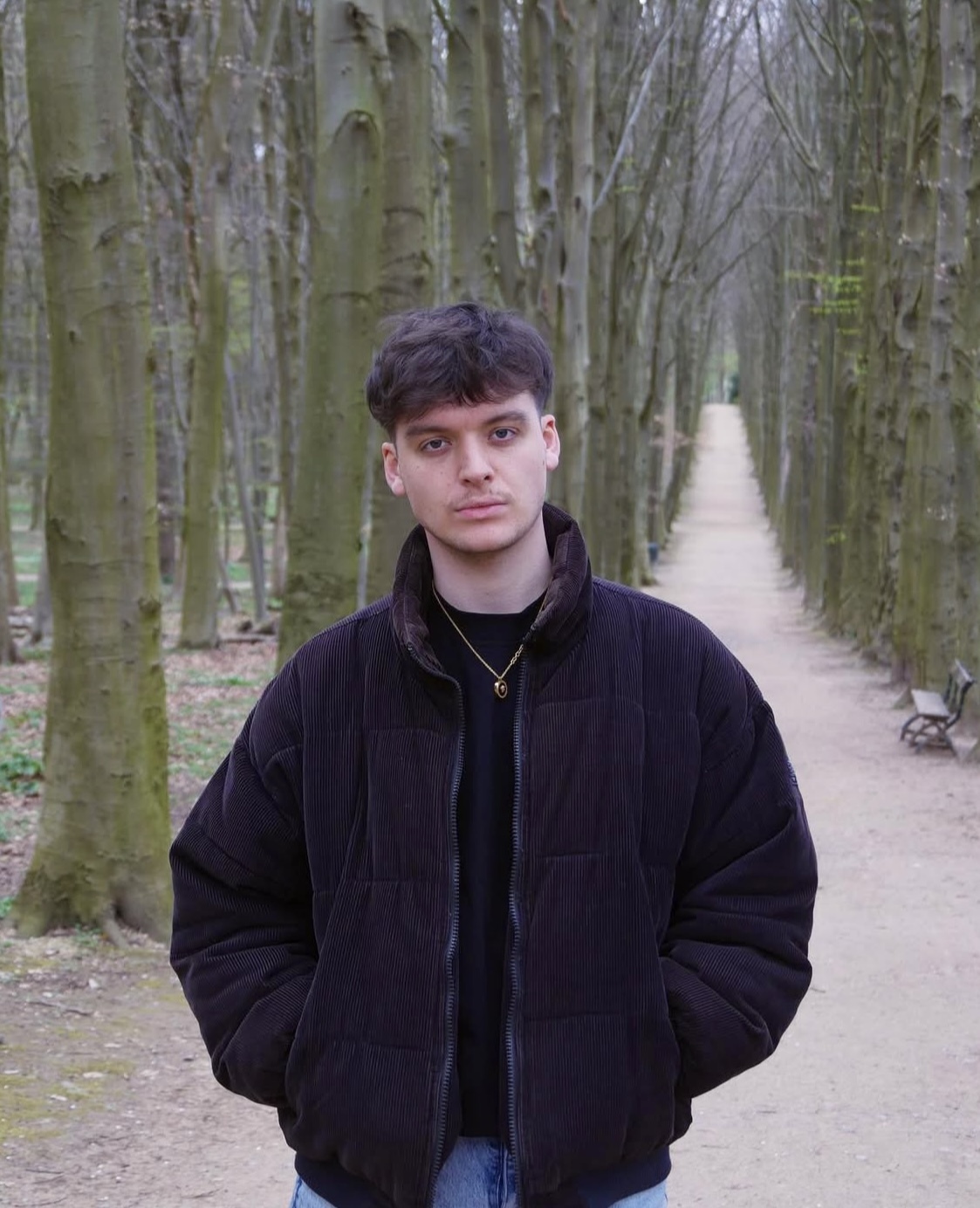
Emile Plompen (efp31[a]cam.ac.uk)
Emile is a PhD student in Chemical Engineering and a member of the Sustainable Energy Materials Innovation project, which focuses on driving materials innovations to catalyse the global energy transition. His research interests centre on leveraging vapour deposition techniques to develop scalable fabrication methods for high-performance all-perovskite tandem solar cells. He obtained his MSc in Chemistry from Katholieke Universiteit Leuven (KU Leuven, Belgium), under the supervision of Prof. Elke Debroye, where he investigated the use of chemical vapour deposition to synthesise novel lead-free halide perovskites for next-generation photodetectors. He previously completed his BSc in Chemistry at the Université libre de Bruxelles (ULB, Belgium).
Started October 2026
Supervised by: Prof. Sam Stranks
Daily Supervised: Dr. Yang Lu
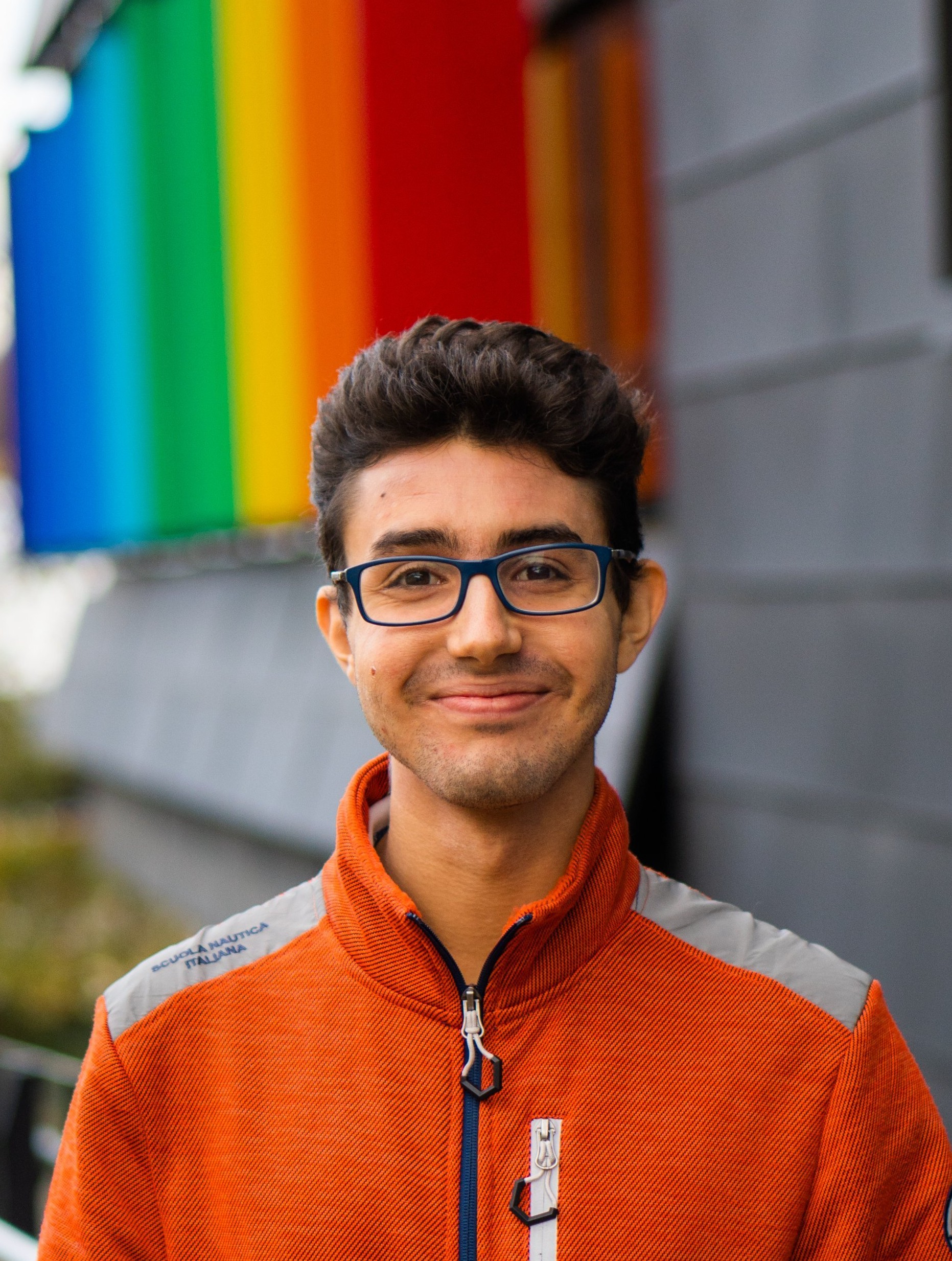
Andrea Rogolino (ar2153[a]cam.ac.uk)
Andrea is a NanoDTC PhD student based at the Department of Chemistry. He's trying to bring perovskites to the world of real artificial photosynthesis.
Started October 2023.
Supervised by: Prof. Erwin Reisner
Co-supervised by: Prof. Sam Stranks

Tom Selby (tas72[a]cam.ac.uk)
Tom is a NanoCDT student working with the Electron Microscopy Group to characterise the structural implications of passivation in perovskites. He previously studied at the University of Nottingham (MSci) where his research focused on encapsulating material within carbon nanotubes. He enjoys running and playing the guitar in his spare time.
Started December 2021
Supervised by: Prof. Sam Stranks
Co-supervised by: Prof. Paul Midgley and Dr. Tiarnan Doherty
Masters & Undergraduate Students
Visiting Students & Faculty
Dr Chieh-Szu Huang (csh67[a]cam.ac.uk)
Chieh-Szu received his PhD in Chemistry (2022) from ETH Zurich in Switzerland for his research on wearable luminescent solar concentrators under the supervision of Dr. Luciano Boesel (Empa, the Swiss Federal Laboratories for Materials Science and Technology) and Prof. Maksym Kovalenko (ETH Zurich). He joined StranksLab as a SNSF PostDoc Mobility fellow (2023) working on polymeric networks integrated photovoltaics.
Started March 2023.
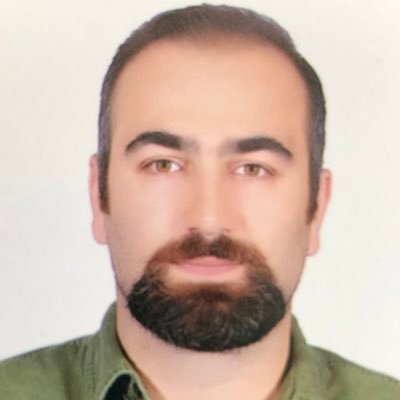
Dr Javad Shamsi (js2452[a]cam.ac.uk)
Javad completed his undergraduate studies in Chemistry at the University of Tehran, working with Prof. Mohammad Reza Ganjali. In 2014, he began a PhD in Nanochemistry at the Italian Institute of Technology (IIT) and the University of Genoa, focusing on semiconducting nanocrystals and their optoelectronic properties.
Following his PhD, Javad joined the Hyperion ERC project led by Prof. Sam Stranks at the Cavendish Laboratory, University of Cambridge, where he investigated quantum-confined perovskite nanoplatelets for advanced lighting technologies, including LEDs and quantum light sources (2018–2022).
After completing his postdoctoral research in September 2022, he was appointed EPSRC Programme Grant Manager in the Department of Physics at Cambridge, a role he now holds part time. He is currently visiting StranksLab for a year to carry out exploratory experiments on next-generation quantum light sources.
Alongside his research, Javad teaches energy materials to MPhil students in the Department of Materials Science and lighting technologies at the Cavendish Laboratory. He is also a Bye-Fellow and Tutor at St Edmund’s College, Cambridge.
Beyond academia, Javad is the Director of ShamsLab, a consultancy specialising in energy, advanced materials, nanotechnology, and quantum technologies, with a mission to address pressing challenges in the global energy sector.
Started October 2025

Laurenz Sippel (ls2200[a]cam.ac.uk)
Laurenz completed his undergraduate studies in Physics at the University of Konstanz under the supervision of Prof. Dr. Lukas Schmidt-Mende, where he worked on transparent conducting oxides. He is now focusing on mixed-metal halide perovskites, with particular interest in extracting photophysical constants from steady-state and time-resolved spectroscopy.
Started October 2025
